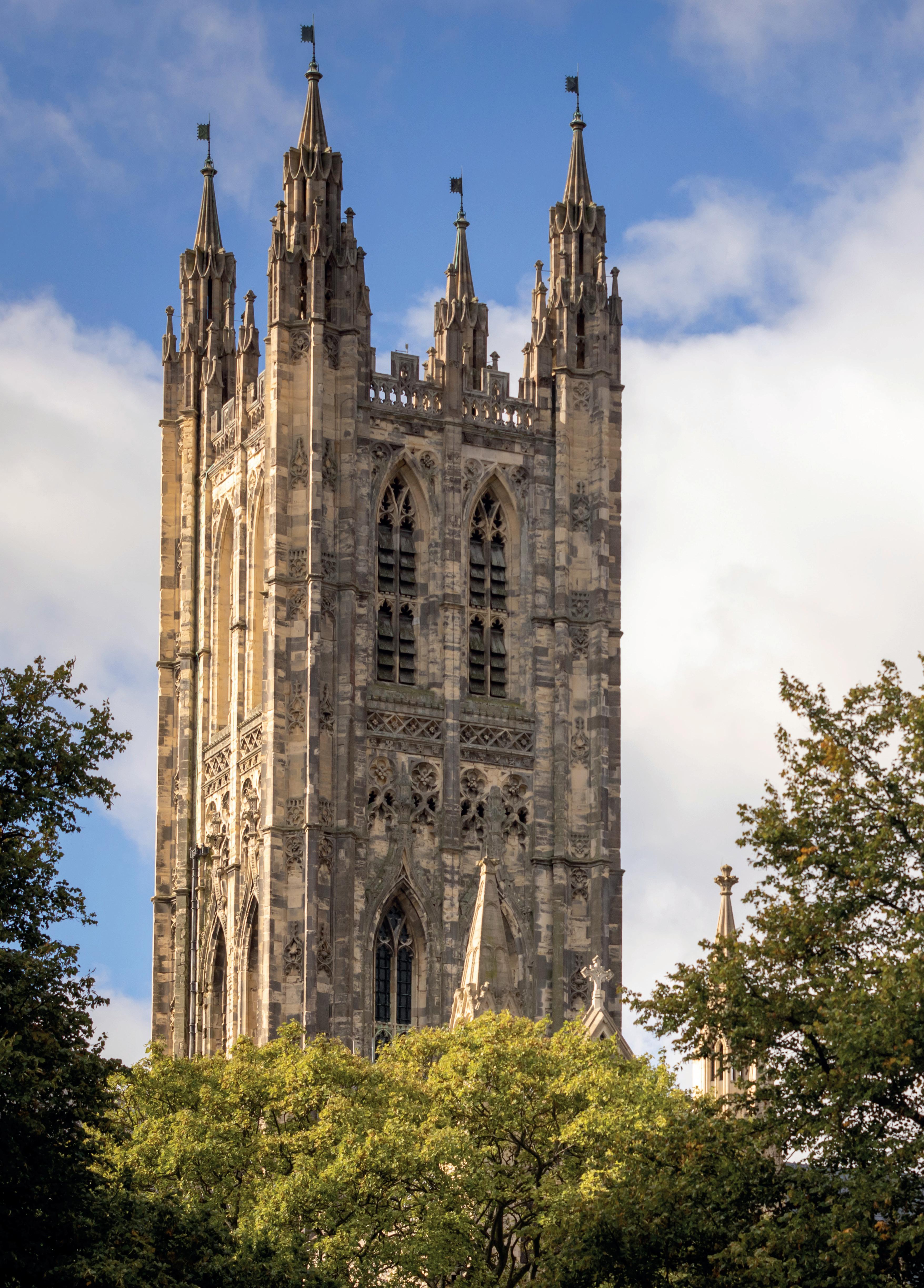

Subject Choices
The Sixth Form at King’s
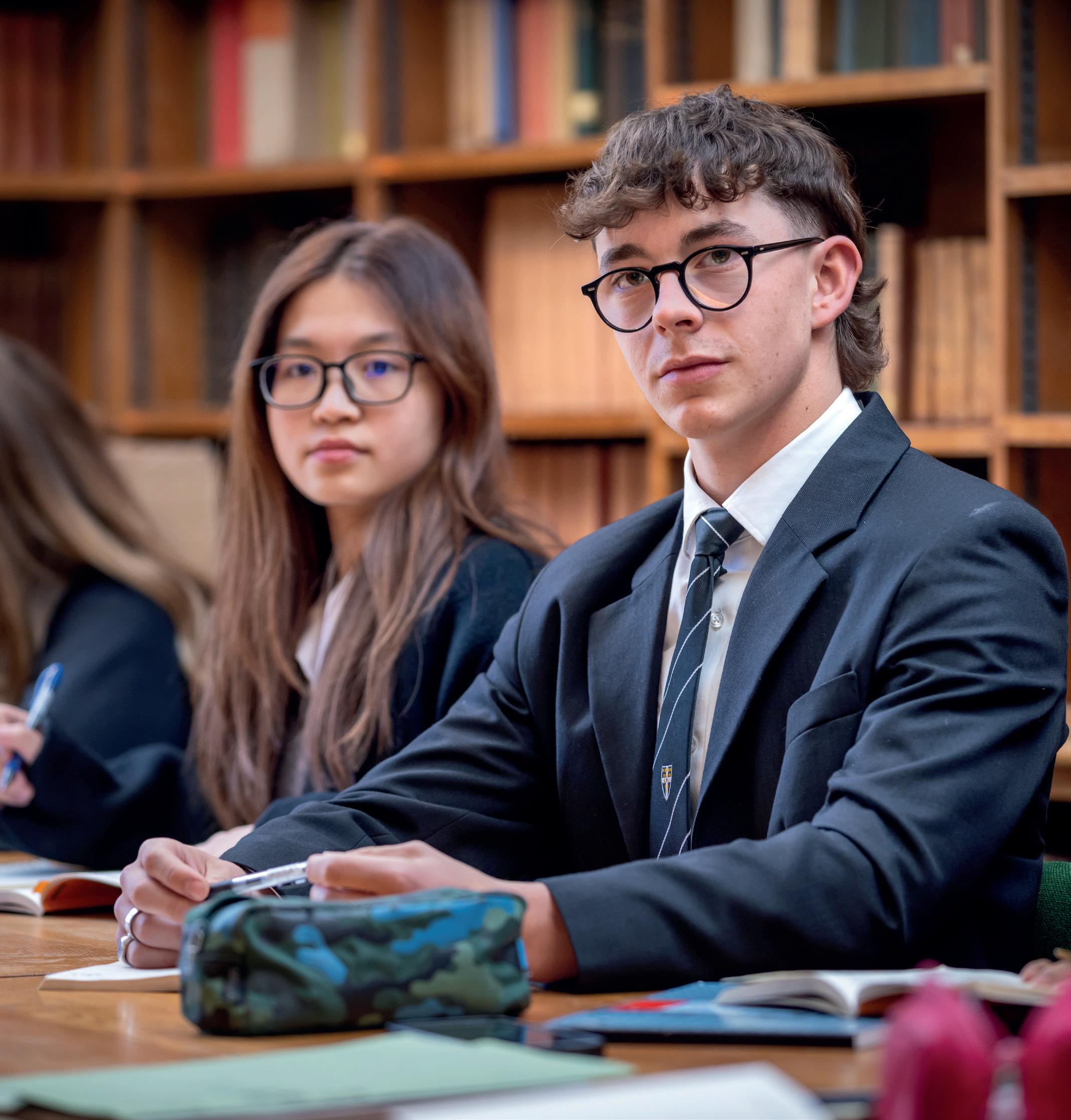
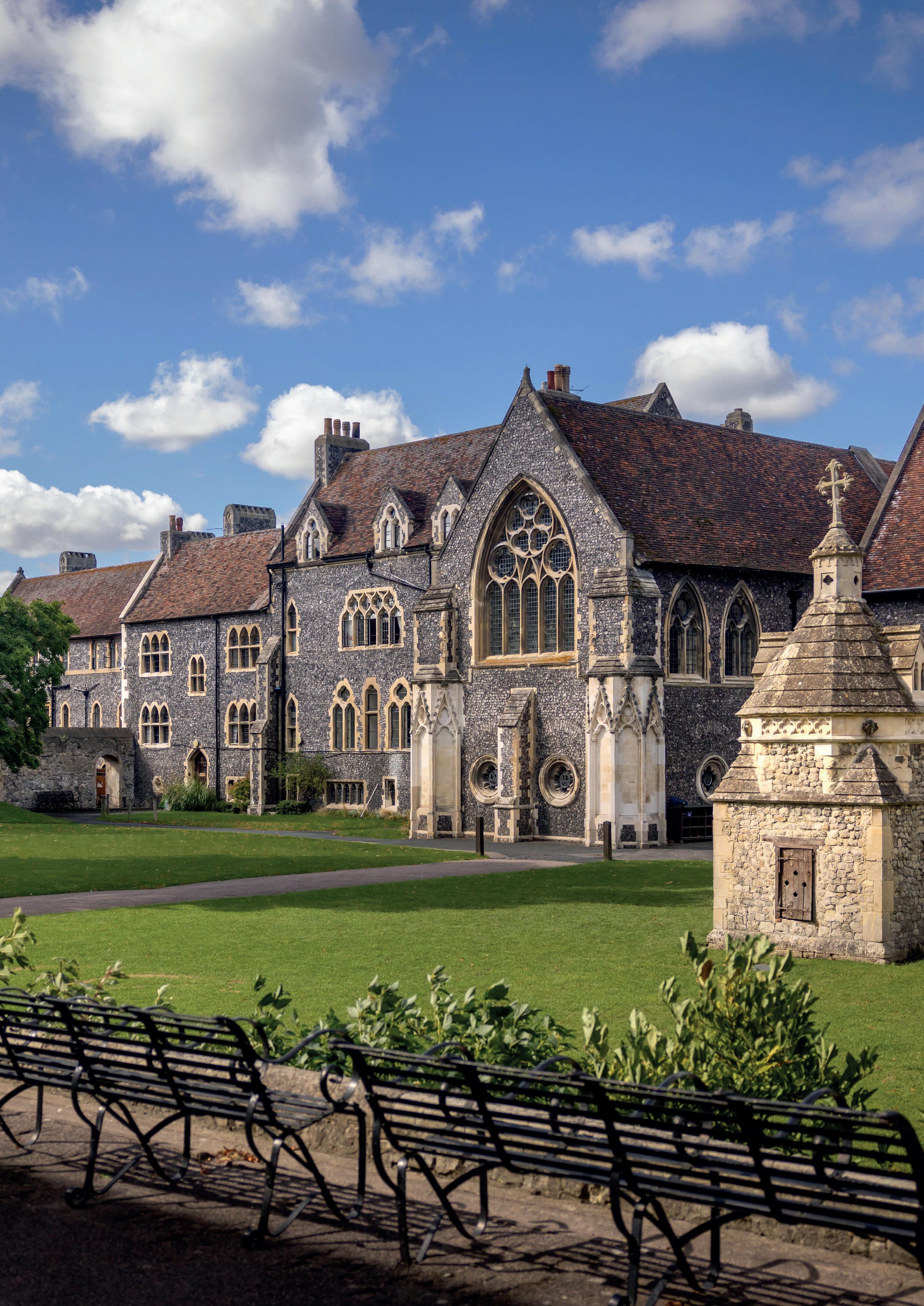
King’s offers 32 A Level courses; more choices than any other school in the country.
Pupils can pick 3 or 4 of the following:
Art & Design
Biology
Business Studies*
Chemistry
Classical Civilisation
Computer Science
Design & Technology
Economics
English Literature
French
Further Maths
Geography
Geology
German History
History of Art
Italian
Japanese
Latin
Mandarin
Mathematics
Music
Music Technology
PE Academic
Philosophy
Photography
Physics
Politics
Psychology
Religious Studies
Russian
Spanish Sport*
Theatre Studies
*
Art & Design
Course: A level Fine Art (AQA 7202)
Head of Department: Mrs Isobel Dutton
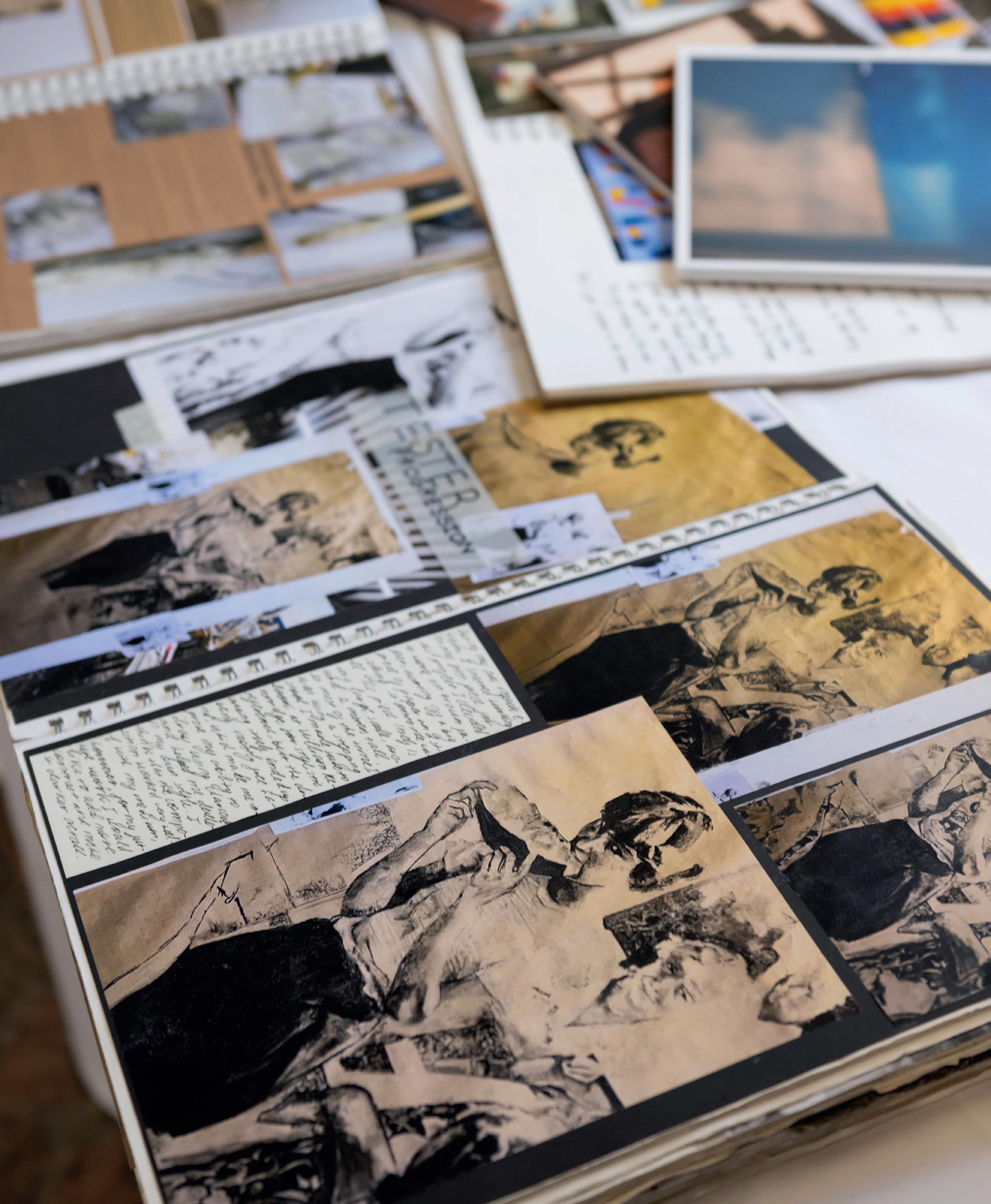
Aims
Art at King’s offers a vibrant and supportive environment for creative exploration. Pupils work across a range of fine art media and techniques, developing a personal visual language through experimentation and reflection. The course encourages engagement with both traditional and contemporary practice, drawing inspiration from global visual culture. Creativity at King’s is understood as both intellectual and expressive: pupils learn not only to make art but to think artistically, viewing the world with imagination, curiosity and courage.
Skills Developed
Pupils gain confidence in drawing, painting, printmaking, photography and sculpture, developing technical fluency and conceptual understanding. They learn to analyse imagery, evaluate artists’ work, and plan their own projects with independence. The discipline of sustained creative practice builds resilience, critical thinking and aesthetic awareness.
Course Content and Assessment
Pupils follow the AQA Art and Design (Fine Art) specification. They explore media, techniques and contextual sources that inform their personal work.
Component 1: Personal Investigation (60%) – a practical and written study on a self-chosen theme, supported by a 3,000-word essay.
Component 2: Externally Set Assignment (40%) – a project based on an exam stimulus, culminating in a 15-hour controlled piece.
Grade 7–9 in GCSE Art is helpful, though creative portfolios are also considered.
Enrichment and Futures
King’s artists benefit from gallery trips, visiting practitioners and in-house exhibitions. We are extremely proud of the quality of our exhibitions and our huge ranges of showcases and exhibitions, particularly during King’s Week. Many of our artists progress to foundation and degree courses in Fine Art, Architecture and Design.
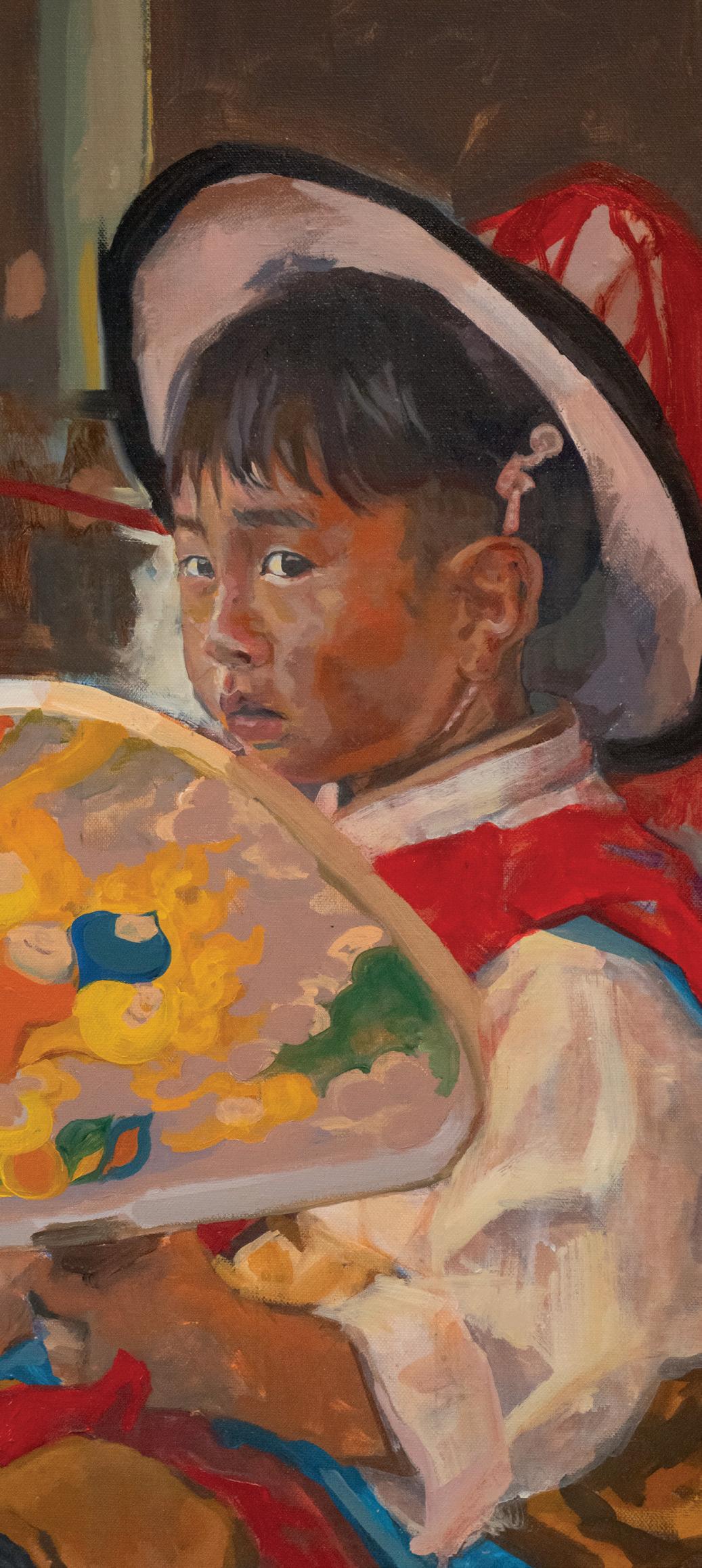
Biology
Course: A level Biology (Cambridge International IGCE 9700)
Head of Department: Dr Helen Vaughan
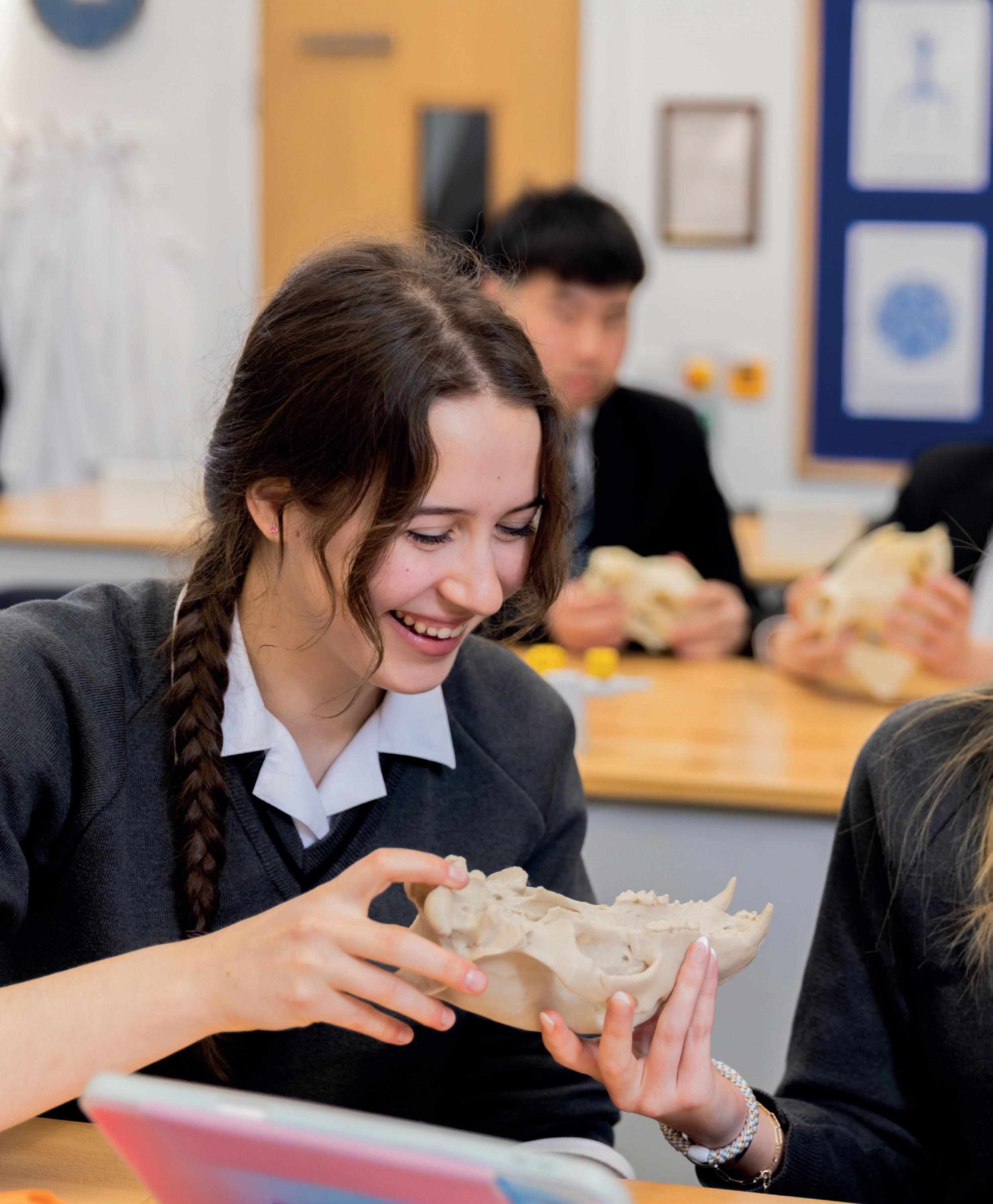
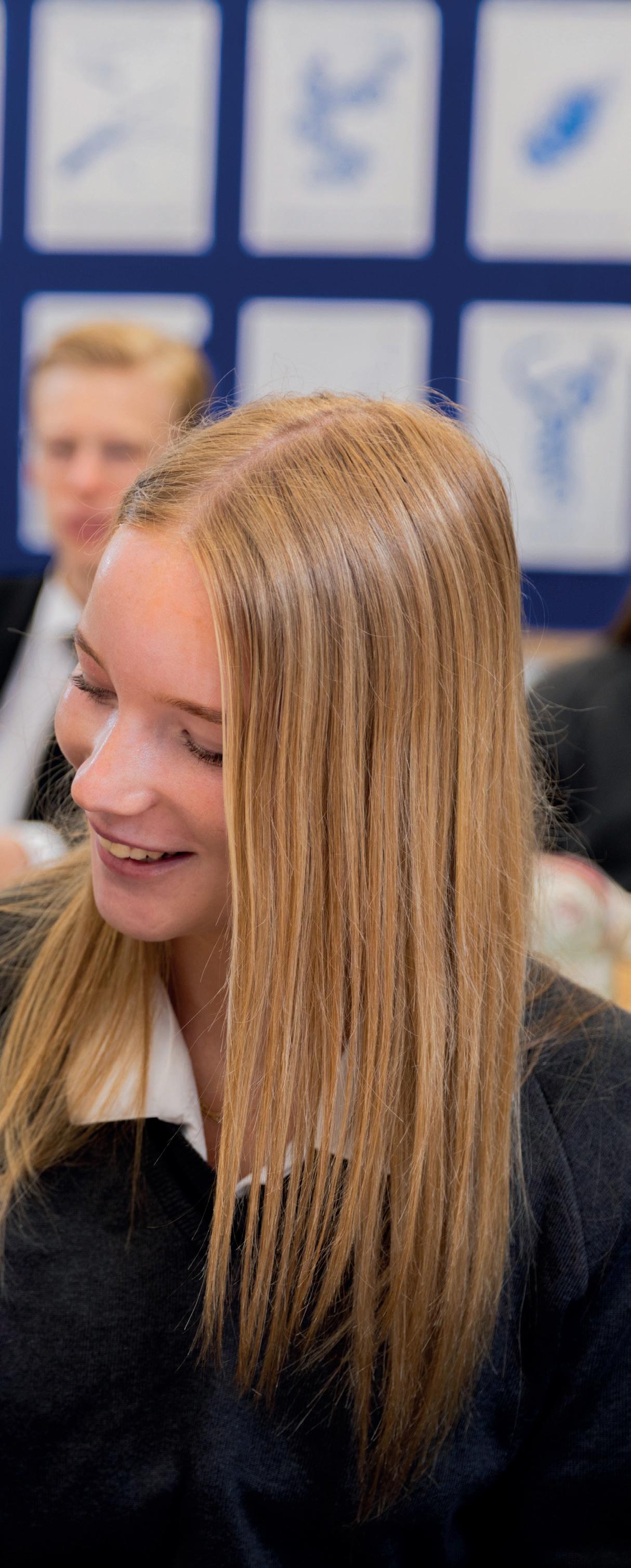
Aims
Biology at King’s explores the processes that sustain life. From molecular genetics to ecology, pupils study the structures, systems and interactions that make the living world work. The course seeks to foster a fascination with life in all its diversity and to develop the scientific literacy needed to understand and debate the major biological questions of our age.
Entry requires grade 7 or above in Biology (or Double Award equivalent) and at least grade 7 in Mathematics. Pupils considering Medicine, Dentistry or Veterinary Science are strongly encouraged to take Chemistry.
Skills Developed
Pupils learn to investigate hypotheses, design and carry out experiments, and interpret results critically. They develop practical dexterity, data analysis and scientific communication. Biology also cultivates intellectual curiosity and ethical awareness, equipping pupils to contribute thoughtfully to discussions on topics such as biotechnology and environmental change.
Course Content and Assessment
The Cambridge International specification covers nineteen topic areas including cell structure, enzymes, biological molecules, gas exchange, transport, photosynthesis, homeostasis, inheritance, biodiversity and genetic technology. Practical work is central and includes microscopy, dissection, microbiology and molecular biology techniques.
Five written papers test both theory and practical understanding.
Enrichment and Futures
Pupils take part in fieldwork, guest lectures and the British Biology Olympiad, as well as the Harvey Society at King’s. King’s Week exhibitions and talks celebrate scientific creativity and discovery.
Many Biologists go on to read Medicine, Natural Sciences, Biochemistry or related disciplines at leading universities.
Business Studies (BTEC Level 3 Extended Certificate)
Course: Pearson BTEC Level 3 National Extended Certificate in Business
Head of Course: Mr Mat Lister

Aims
The Business BTEC at King’s provides a practical and applied introduction to the world of enterprise, management and finance. Pupils develop a strong understanding of how businesses operate, make decisions, and respond to global challenges. The course focuses on real-world application and prepares pupils to think critically about strategy, leadership and innovation in both local and international contexts.
Skills Developed
Pupils learn to analyse and interpret business information, evaluate data, and make informed decisions. The course develops skills in research, problem-solving, communication, teamwork and project management. Pupils gain insight into the interconnectedness of marketing, finance, operations and human resources, building the confidence to apply theoretical understanding to practical case studies.

Course Content and Assessment
The Extended Certificate is equivalent to one full A level and is assessed through a mixture of internally assessed coursework and externally set examinations. Units include:
• Exploring Business
• Developing a Marketing Campaign
• Personal and Business Finance
• Recruitment and Selection Process
Pupils investigate the structure and purpose of different types of organisations, explore marketing and financial decision-making, and learn how businesses adapt in a competitive global environment. Assessments are spread across the two years, allowing for continuous development and feedback.
Enrichment and Futures
The department encourages pupils to connect classroom learning with the real business world. Guest speakers, enterprise competitions and industry visits bring theory to life, while pupils can take part in Young Enterprise and business leadership challenges.
The BTEC Extended Certificate in Business carries full UCAS points and is highly valued by universities for its balance of academic study and applied learning. It provides an excellent foundation for undergraduate courses in Business Management, Marketing, Economics, Finance, and International Relations. Many King’s pupils go on to study Businessrelated degrees at universities such as Bath, Loughborough, Durham and Exeter, or enter higher-level apprenticeships with major firms.
Chemistry
Course: A level Chemistry (Pearson 9CH0) Head of Department:
Claire Frere

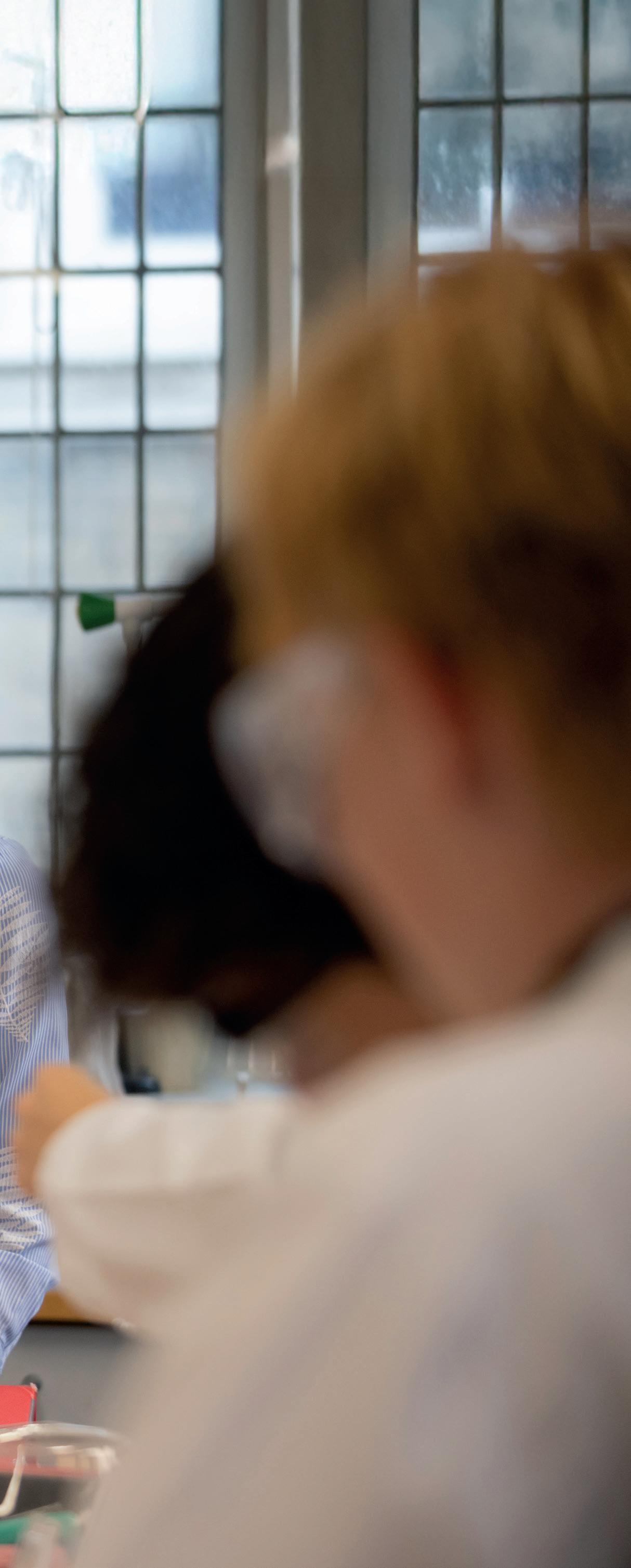
Aims
Chemistry at King’s reveals the patterns and principles that govern the material world. Pupils study how substances interact, how reactions occur and how chemistry underpins life itself. The course combines rigorous theoretical work with hands-on experimentation and encourages pupils to appreciate chemistry’s role in solving global challenges in health, energy and the environment.
Skills Developed
Pupils refine analytical thinking, numerical reasoning and precision through practical and theoretical study. They develop problem-solving and modelling skills and learn to design and conduct experiments safely and independently. Chemistry provides the foundations for many scientific and technical disciplines and cultivates a logical, evidence-based mindset.
Course Content and Assessment
The Edexcel specification gives equal weight to Physical, Inorganic and Organic Chemistry. Topics include atomic structure, bonding, kinetics, equilibria, energetics, redox and electrochemistry, transition metals and analytical techniques.
Paper 1: Physical and Inorganic Chemistry (30%)
Paper 2: Organic and Analytical Chemistry (30%)
Paper 3: General and Practical Principles (40%)
Laboratory skills are continuously assessed through the practical endorsement. Entry requires grade 7 or higher in Chemistry and in Mathematics.
Enrichment and Futures
King’s chemists benefit from superb laboratory facilities, the Harvey Society lecture programme and preparation for Olympiads and university admissions tests. Practical demonstrations and Science Week events during King’s Week further enhance engagement.
Many Chemists progress to Medicine, Chemical Engineering or the Natural Sciences.
Classics (Latin and Greek)
Course: A level (OCR H443 (Latin)/H444 (Greek))
Head of Department: Mr Matthew Browning
Aims
The study of Latin and Greek at King’s connects pupils to the roots of Western literature, philosophy and thought. Through close engagement with language and text, pupils gain insight into the cultures of ancient Greece and Rome and learn to appreciate their continuing influence on the modern world. The course develops precision, discipline and a deep enjoyment of language.
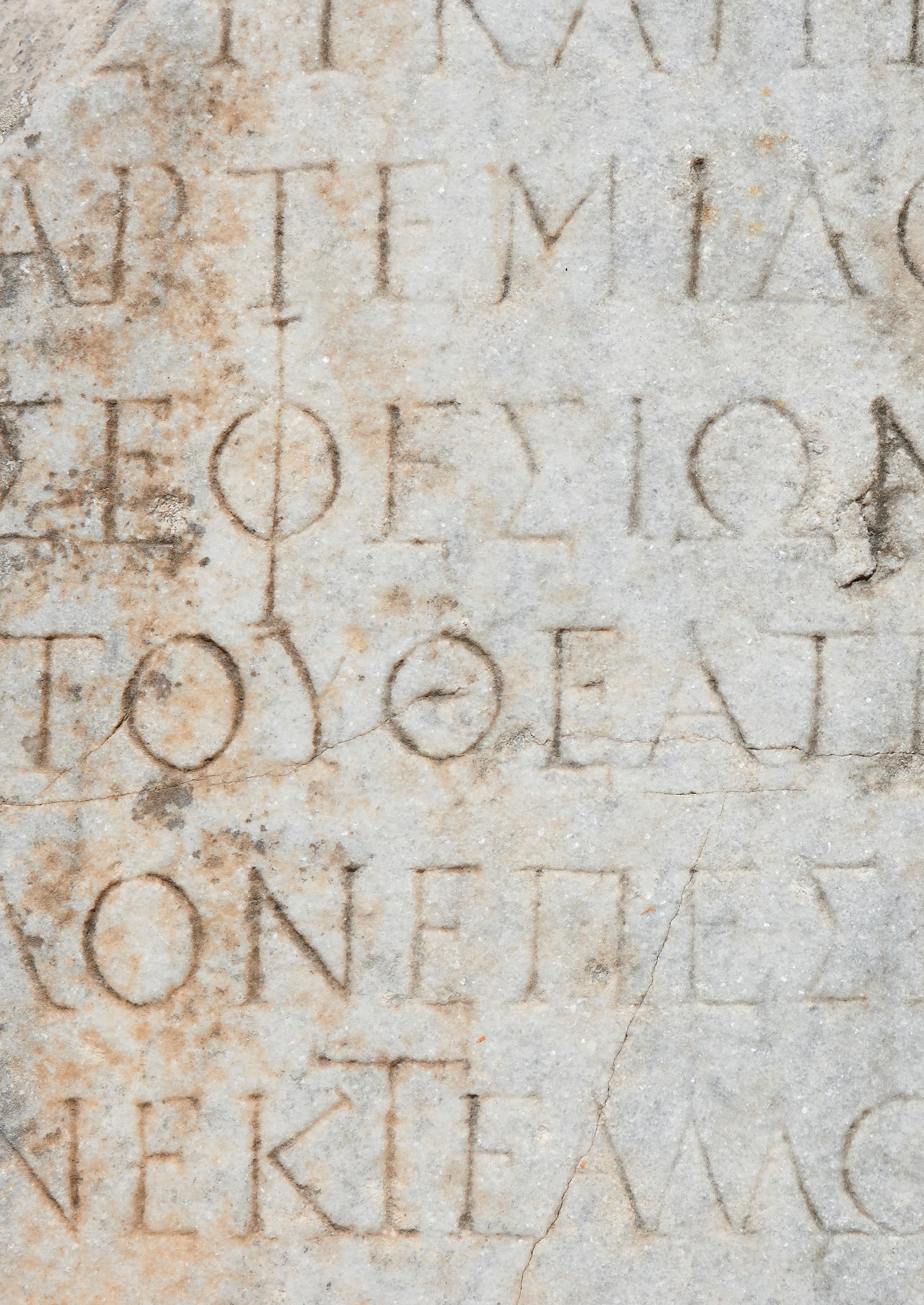
Skills Developed
Pupils learn to read, translate and analyse complex texts with accuracy and insight. They refine logical reasoning, attention to detail and interpretative skill while developing literary sensitivity and historical understanding. These are the same skills valued in law, languages, philosophy and the humanities more broadly.
Enrichment and Futures
The department runs the Pater Society and regular trips to theatres, museums and archaeological sites. Pupils also take part in lectures, competitions and the study of inscriptions and artefacts. Classical scholarship is often showcased during King’s Week.
Classics courses are available at most good universities. The study of Latin and Greek can lead to ‘Greats’ at Oxford or the Classical Tripos at Cambridge. Latin and Greek also provide a sound basis for courses that are not taught directly at school, such as Law and Oriental Languages. There is an ever-increasing range of combined courses at university such as Latin/English, Greek/Russian and Ancient/ Modern History. New courses in Archaeology & Anthropology are also proving to be attractive to King’s pupils.
Course Content and Assessment
Following the OCR specification, pupils study both language and literature. Set texts vary but include authors such as Virgil, Ovid, Cicero, Homer and Thucydides. Translation from and into Latin or Greek is complemented by literary analysis and historical context. All assessment is by final examination.
GCSE Latin or Greek at grade 6 or above is normally required. Pupils who have studied both may pursue them together.
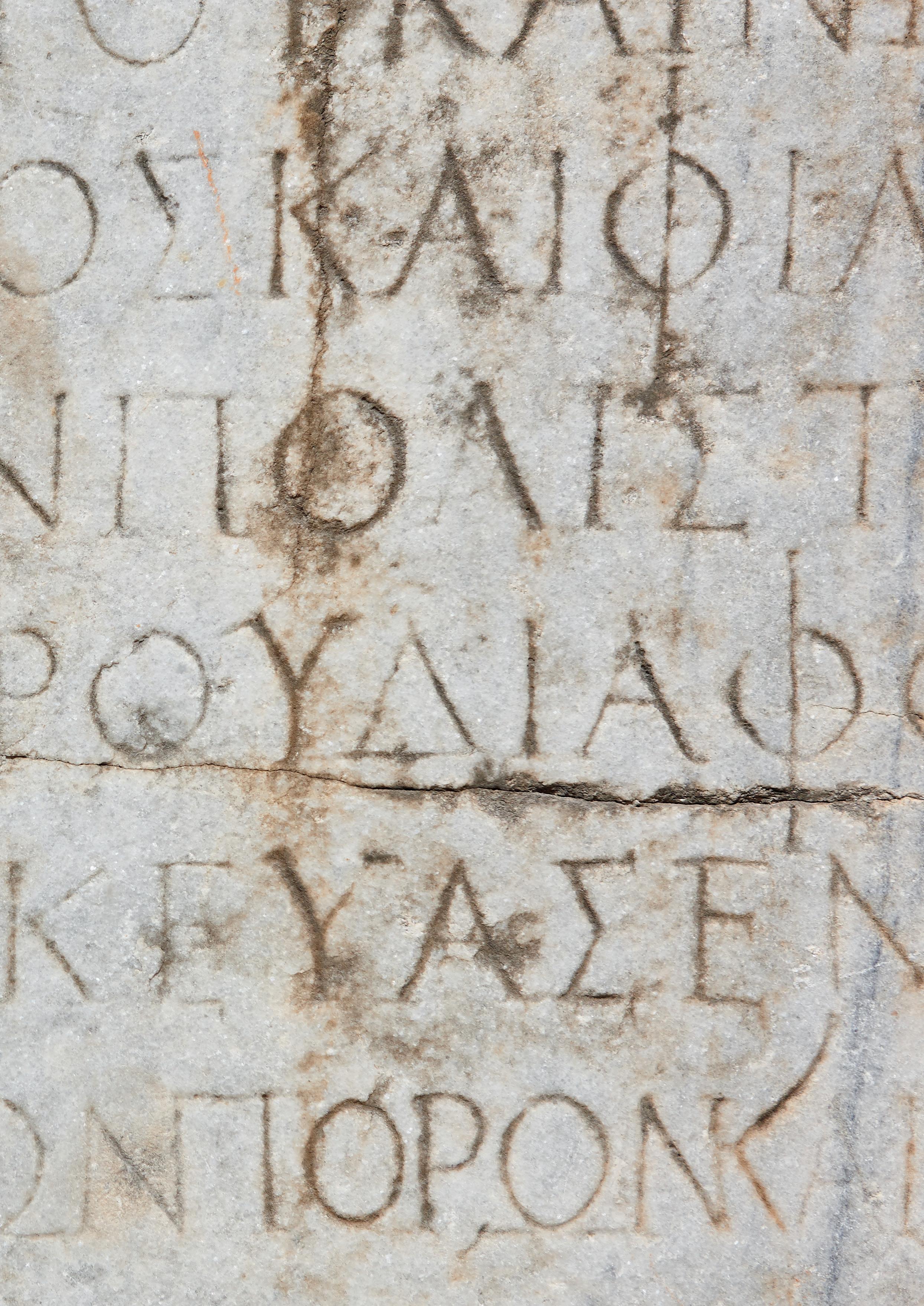
Classical Civilisation
Course: A level (OCR H408H)
Head of Department: Mr
Matthew Browning

Aims
Classical Civilisation at King’s explores the literature, philosophy and art of the ancient world, uncovering how the Greeks and Romans grappled with ideas that remain vital today. The subject is open to all, whether or not pupils have studied Latin or Greek before (everything is studied in English), and provides a rich and rewarding perspective on human experience.
Skills Developed
Pupils learn to analyse texts in translation, evaluate visual and material evidence and construct well-supported arguments. The course encourages clear written communication, critical thinking and appreciation of artistic and historical context.
Alongside close reading of set texts, pupils explore broader themes in literature, culture, art and archaeology, often through direct engagement with primary evidence. Classical Civilisation is a rich and rounded subject in its own right, combining naturally with Classical Languages, English, Theatre Studies, History of Art, History, Modern Languages and Religious Studies. It also offers an ideal opportunity for pupils pursuing mainly Sciences or Mathematics to sustain their interest in literature, art and history while broadening their academic perspective.
Course Content and Assessment
Pupils follow the OCR specification, studying three components:
The World of the Hero – epic poetry such as Homer’s Iliad or Odyssey and Virgil’s Aeneid.
Culture and the Arts – topics such as Imperial Image, exploring Augustus and the art of power.
Beliefs and Ideas – themes such as Democracy and the Athenians.
All assessment is through written examination at the end of the course.
Enrichment and Futures
Trips to the British Museum, theatre productions and overseas visits to sites in Italy, Greece and Sicily deepen understanding. The Pater Society hosts lectures and workshops throughout the year. During King’s Week, pupils often present classical plays and exhibitions.
There are degree courses in Classical Civilisation at a wide range of universities. While some pupils continue their study of Classical Civilisation, others pursue courses such as Arch & Anth., Theology, or Philosophy. The same wide variety of careers open to any Arts graduate is available to Classical Civilisation graduates and, while some are attracted to jobs involving research and presentational skills such as Journalism or Local Government, others pursue exciting careers in the Media.
Computer Science
Course: A level (CIE International IGCE 9618)
Head of Department: Mr Chris Wooldridge

Aims
Computer Science at King’s enables pupils to understand, design and create technology rather than simply use it. The course provides a rigorous foundation in programming, algorithms and computational theory, preparing pupils to become adaptable and innovative problem-solvers in a rapidly changing digital world.
Course Content and Assessment
Pupils follow the CIE specification:
• Theory Fundamentals
• Problem-Solving and Programming
• Advanced Theory
A GCSE in Computer Science or Computing will be highly beneficial to making a positive start the course but those without a GCSE in computer science have done well if they have shown a high level of interest and (essential) already have experience in coding. A grade 7 at I/GCSE Mathematics or equivalent is required as is an interest in computer programming.
Skills Developed
Pupils learn to think algorithmically, apply logical reasoning and design efficient solutions. They develop fluency in coding, analytical precision and project design, gaining confidence with the tools and ideas that drive modern technology.
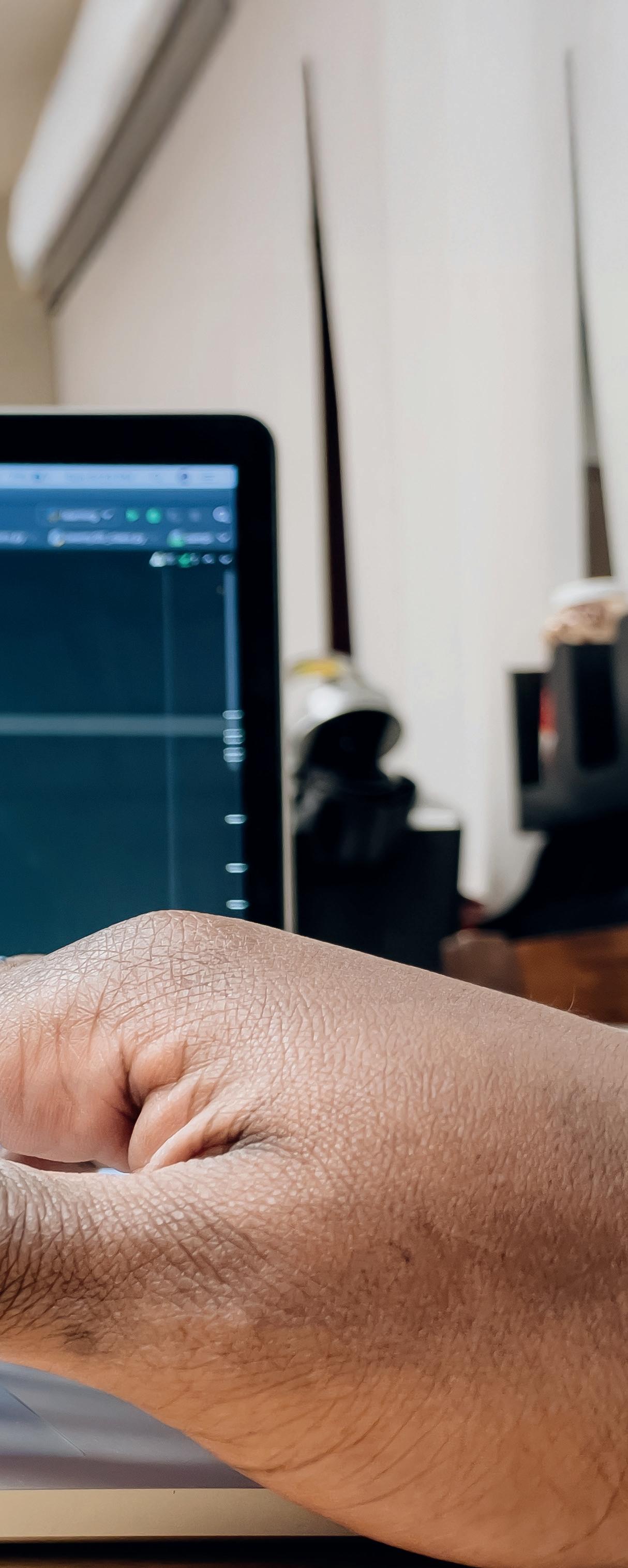
• Further Programming and Application Development
Assessment is through four papers (each 25%) involving written and on-screen work.
Note: Papers 1 and 2 will be taken in the October half-term of the 6a year. If required pupils can retake these papers in the summer examinations. Those not retaking in the summer will then only take papers 3 and 4 in the summer term of the 6a year.
Enrichment and Futures
Pupils participate in national and international coding competitions, hackathons and robotics challenges, and many pursue additional programming projects or app development independently. The department runs coding clubs, collaborates with other STEM disciplines on digital innovation projects, and encourages pupils to experiment with emerging technologies such as machine learning and data analytics.
Many go on to study Computer Science, Data Science, Artificial Intelligence, or Engineering at leading universities, including Oxbridge and Imperial, and several alumni have progressed to work in software development, cyber security, and tech entrepreneurship.
Design & Technology
Course: A level Product Design (Pearson 9DT0)
Head of Department: Mr Matthew Rolison
Aims
Design & Technology at King’s combines creativity with technical understanding. Pupils learn to design and make solutions that address real-world needs, integrating aesthetic judgement, scientific reasoning and practical craftsmanship. materials, tools, equipment and processes. The challenge of the subject is to use this knowledge base, together with creative flair and good personal organisation and time management skills, to design and make solutions to real-life design problems.
Enrichment and Futures
Design & Technology is an excellent choice for pupils seeking entry to undergraduate courses in Engineering, Industrial Design, Product Design, Human Factors Engineering, Architecture and related areas.
The intellectual rigour, creativity and project management skills required by this course will be relevant in most degree courses and careers. Design & Technology is accepted as an appropriate third A level (after Maths and Physics) for those seeking entry to the Cambridge University undergraduate Engineering course.
Skills Developed
Pupils gain confidence in design thinking, materials analysis, and model and prototype production. They develop project management, problem-solving and presentation skills, all of which are highly transferable.
Able candidates are encouraged to apply for an Arkwright Scholarship during their final year of GCSEs. Arkwright scholarships are a very useful addition to the CV of an aspiring Engineer details here: https://www.arkwright.org.uk/
Course Content and Asessment
Component 1: Principles of Design and Technology (50%) – a written paper on materials, design theory, sustainability and modern manufacturing.
Component 2: Independent Design and Make Project (50%) – a major coursework project, including prototype and supporting portfolio.
Prior experience in Design & Technology or Engineering at GCSE is recommended.
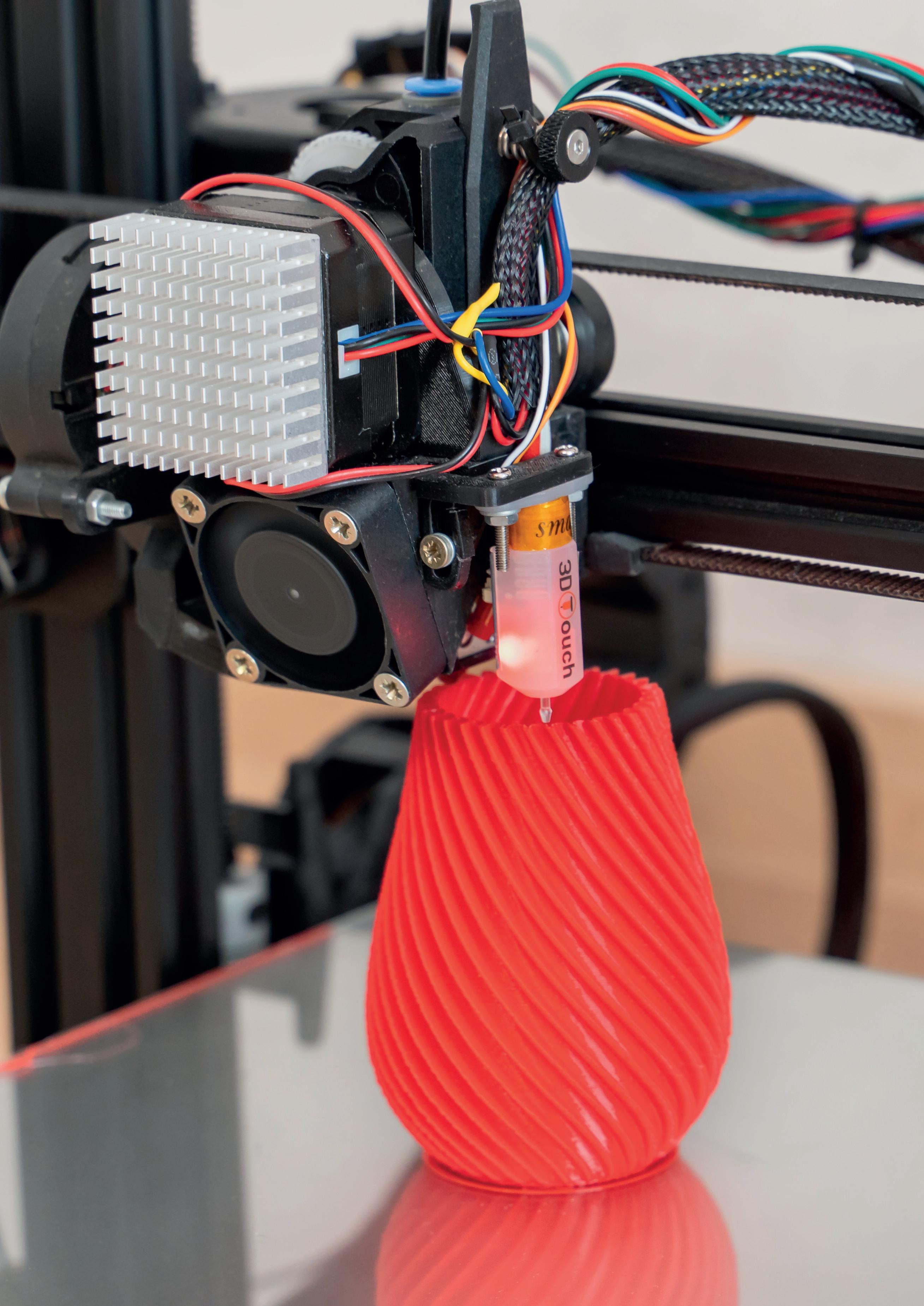
Drama and Theatre Studies
Course: A level Drama (CIE International IGCE 9482)
Head of Department: Ms Rebekah Frances
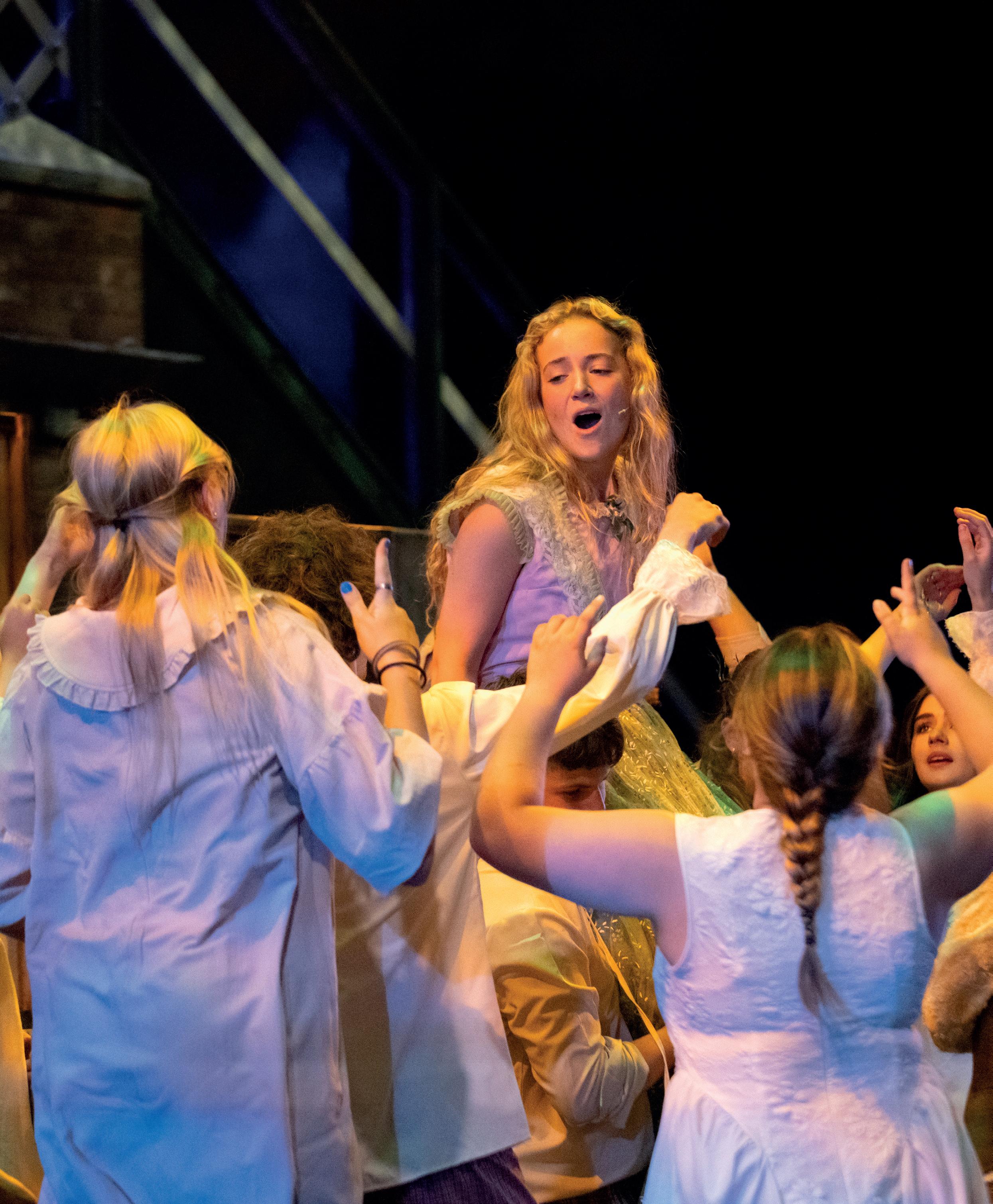
Aims
Drama at King’s inspires imagination, empathy and curiosity while developing confidence, teamwork and leadership through collaborative work. The course combines creative expression with analytical study of texts in performance and pairs well with many other A level subjects. In today’s world, creativity, confidence and leadership are among the most sought-after skills for graduates, and Drama nurtures them all.
While I/GCSE Drama provides a helpful foundation, it is not essential. What matters most is enthusiasm, commitment, and the ability to work both independently and as part of a team.
performance drawn from thematically linked texts. Both performances take place in the 6a year.
4. Theatre in Context
A research project culminating in a 3,000-word essay. Pupils explore two performance texts, a practitioner, genre or style, or investigate performance elements such as direction, technical design, or audience experience.
Skills Developed
Pupils gain confidence in performance and design, collaboration and independent thought. They develop strong analytical, interpretative and communication skills, all highly valued in further study and the workplace.
Course Content and Assessment
The A level in Drama comprises four components, each worth 25%.
1. Written Examination
Candidates study set texts and published plays (currently Small Island and Blood Wedding), analysing extracts in depth and exploring how they connect to the play as a whole.
2. Practical Drama
This component develops devising and performance skills through two assessed pieces: one devised and one scripted. Both are performed in groups but assessed individually and moderated externally. Each devised piece is accompanied by a short spoken evaluation explaining key creative choices.
3. Theatre Making and Performing Pupils devise and perform a group piece for a live audience, inspired by a chosen practitioner, tradition or style, supported by a reflective 800word essay. They also prepare an individual
Enrichment and Futures
Pupils choosing to take Theatre Studies in the Sixth Form participate in school organised theatre visits both locally (e.g. at the Gulbenkian and Marlowe theatres in Canterbury) and nationally (e.g. Barbican Theatre, The Almeida, The Old Vic, The Royal National Theatre, Royal Court, Young Vic) - capitalising on Canterbury’s proximity to London. Pupils also attend a research day at The National Theatre Archives where they can watch their set texts and participate in a backstage tour of the theatre.
Pupils participate in major School productions and workshops with industry professionals, and King’s Week showcases student performances and original plays. Many go on to study Drama, English or the performing arts at top universities or conservatoires.
Economics
Course: A level (Pearson 9EC0)
Head of Department: Ms Aine Troy
Aims
Economics at King’s equips pupils to understand how individuals, firms and governments make choices in a world of scarce resources. It helps them interpret the forces that shape markets, employment and global prosperity. The subject encourages curiosity about current affairs and develops the ability to evaluate competing perspectives on policy and growth.
Skills Developed
Pupils learn to analyse data, interpret economic indicators and construct logical, evidencebased arguments. They develop numeracy, essay writing and independent research skills, becoming confident in discussing realworld issues such as inflation, inequality and sustainability.
Course Content and Assessment
Pupils follow the Edexcel specification, studying four main themes:
1. Introduction to Markets and Market Failure –how markets work and why they sometimes fail.
2. The UK Economy – performance, policy and measurement of growth.
3. Business Behaviour and the Labour Market – competition, productivity and government intervention.
4. A Global Perspective – international trade, development, poverty and financial systems.
Paper 1: Markets and Business Behaviour (35%)
Paper 2: The National and Global Economy (35%)
Paper 3: Microeconomics and Macroeconomics (30%)
Each paper is two hours long and based on stimulus data and extended written responses. Entry requires at least grade 6 in GCSE Mathematics.
Enrichment and Futures
Economists at King’s take part in lectures, competitions and enterprise projects throughout the year. Partnerships with institutions such as Morgan Stanley, HSBC and the Bank of England provide valuable realworld insight, while the Economics Society hosts visiting speakers and pupil presentations.
Many pupils go on to study Economics, PPE, Business or Finance at leading universities in the UK and abroad. The subject fosters logical thinking, systematic analysis and an awareness of the limits of prediction in complex systems. These skills prepare pupils for a wide range of careers, from the City to public policy, research and beyond.

English Literature
Course: A level (OCR H472)
Head of
Department: Mr Oliver Ridley
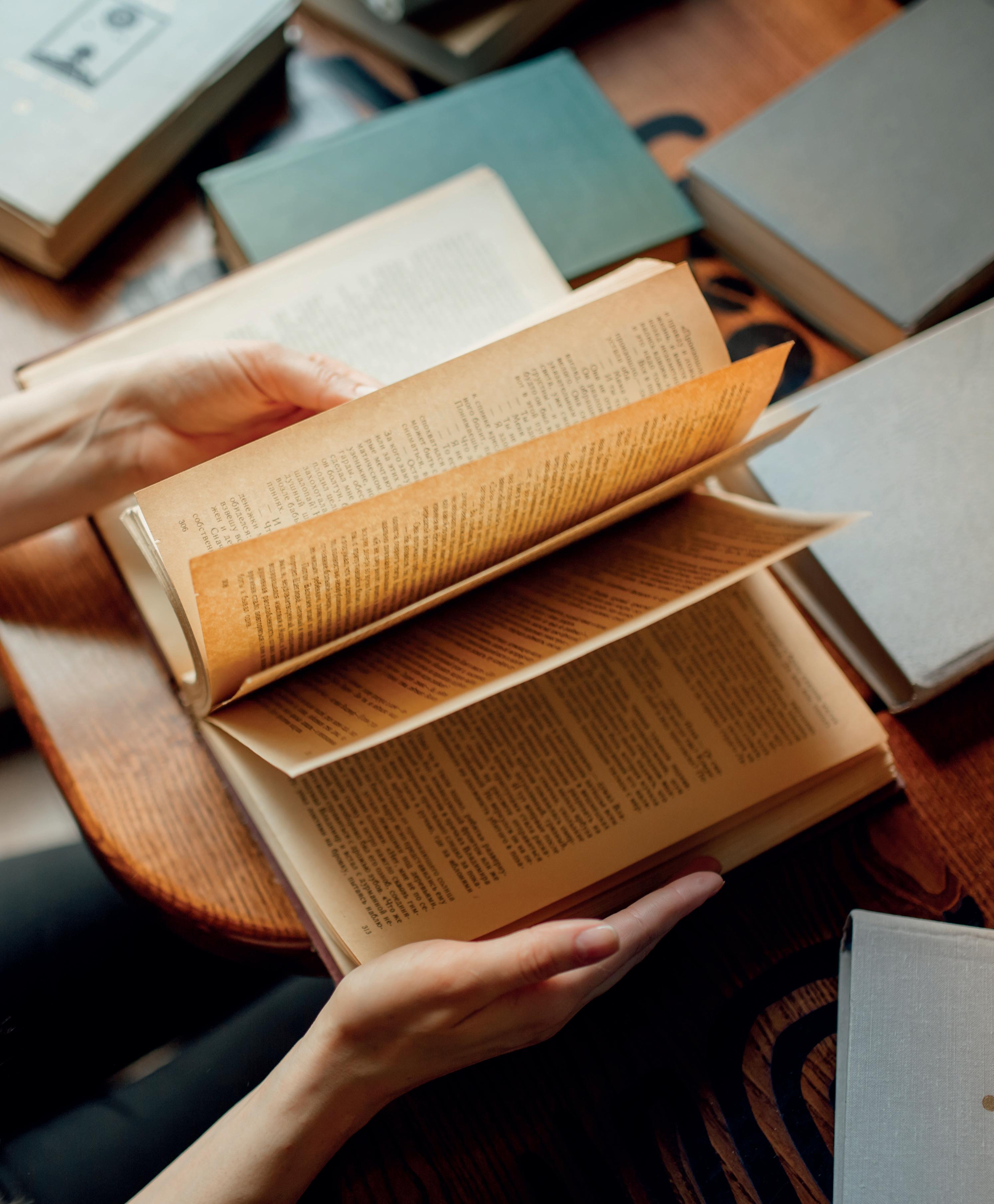
Aims
English Literature at King’s invites pupils to read widely, think deeply and write with precision. Through novels, poetry and drama, they explore how writers express ideas about identity, power, morality and society, developing thoughtful debate and independent critical judgement.
Grades 7–9 in GCSE or IGCSE English Literature are desirable. The course spans writers from Chaucer, Milton and Shakespeare to Fitzgerald, Steinbeck and Butterworth, and demands wellevidenced analytical writing. Expectations are high, but the department’s guiding aim is to foster a lifelong love of literature. Enjoyment is at the heart of the course, and success naturally follows.
Skills Developed
Pupils learn to analyse language, construct persuasive arguments and write with clarity and sophistication. They engage with literary theory and develop research and referencing skills that prepare them for university-level study.
Over the two-year course, pupils produce regular formal essays and read widely beyond their set texts. Sixth Form English at King’s is a creative and collaborative experience: lessons take the form of seminars led by subject specialists, where independent thinking is encouraged and pupils are expected to take the lead.
Course Content and Assessment
The OCR specification offers a balanced study of poetry, prose and drama across time periods, including Shakespeare and contemporary writing. Coursework involves comparative analysis and independent research.
Paper 1 – Poetry and Drama
One Shakespeare play (examples include King Lear and Hamlet)
One poet (examples include Chaucer and Rossetti)
One dramatist (examples include Webster and Ibsen)
Paper 2 – Synoptic Unit
A thematic study based around American Literature. Set tests have included The Great Gatsby and The Grapes of Wrath.
Paper 3 – Coursework
Pupils research and write a comparative essay on three texts written post-1990, at least one of which is their own choice. This is an independent and hugely enriching task.
Enrichment and Futures
Study in the classroom is enriched by a wide range of extension activities, including regular theatre visits and poetry readings. The Marlowe Society meets throughout the year for lectures, discussions and student-led presentations, while specialist sessions support those preparing for university applications in English.
English Literature complements many other disciplines. It draws on history, philosophy, psychology, sociology and linguistics, and pairs naturally with the Arts, Humanities and any subject requiring analytical writing. For some pupils, it also brings balance alongside scientific study.
Creative writing projects and theatre trips feature regularly, and King’s Week celebrates literary performance and debate. Many pupils go on to study English or related subjects at leading universities, including those in the Russell Group.
Extended Project Qualification (EPQ)
Course: Pearson Edexcel Level 3 Extended Project Qualification Coordinator: Dr Lewin Hynes

Aims
The Extended Project Qualification at King’s gives pupils the freedom to explore a topic of personal interest in depth. It is an independent research project designed to develop curiosity, initiative and academic rigour. Pupils learn to think like undergraduates: identifying a research question, conducting a literature review, analysing evidence and communicating their findings.
The EPQ complements A level study by encouraging independence and intellectual maturity. It offers excellent preparation for university interviews and research-based assessment, and it is highly regarded by admissions tutors for the skills it demonstrates.
Enrichment and Futures
EPQ pupils form part of a lively academic community at King’s, with seminars, research clinics and mentor meetings supporting their work.
Topics in recent years have ranged from neuroscience and geopolitics to theology, architecture and film. Recent successful projects have included:
How far can urban architecture influence social behaviour?
Is China’s Belt and Road initiative a new form of imperialism?
Do social media algorithms undermine democracy?
Skills Developed
Pupils acquire advanced skills in planning, critical analysis, academic writing and referencing. They learn to synthesise sources, manage time effectively and present ideas with clarity and confidence. The process mirrors undergraduate study, building resilience and self-discipline.
Course Content and Assessment
The qualification can take the form of a dissertation, investigation, performance, or artefact with accompanying report. Pupils work under supervision but are expected to lead the direction of their research. The project typically begins in the 6b year, with completion by the end of the 6a Lent term.
Project Proposal and Production Log – planning, research and review.
Final Outcome – written report or creative product (5,000 words for a dissertation, shorter with artefacts or performances).
Presentation – a 10-minute viva-style defence of findings.
The qualification carries up to 28 UCAS points (equivalent to half an A level).
Are psychopaths born or bred?
Should the pursuit of xenotransplantation from pigs to humans, which stems from using CRISPR gene editing to prevent porcine endogenous retrovirus infection, be restricted?
Is the transfer model for most major football clubs sustainable?
Creating a sculpture which portrays the Warsaw Uprising.
The EPQ is highly regarded by universities. Many institutions, including Oxford, Cambridge, UCL, and Durham, explicitly recognise the EPQ as evidence of intellectual curiosity and academic independence. Several make alternative offers to candidates who achieve an A or A* in their EPQ. Completing an EPQ enables pupils to demonstrate readiness for the self-directed study required at university and provides a powerful talking point for interviews and personal statements.
Geography
Course: A level (Cambridge CIE IGCE 9696)
Head of Department: Ms Freyja Dolan
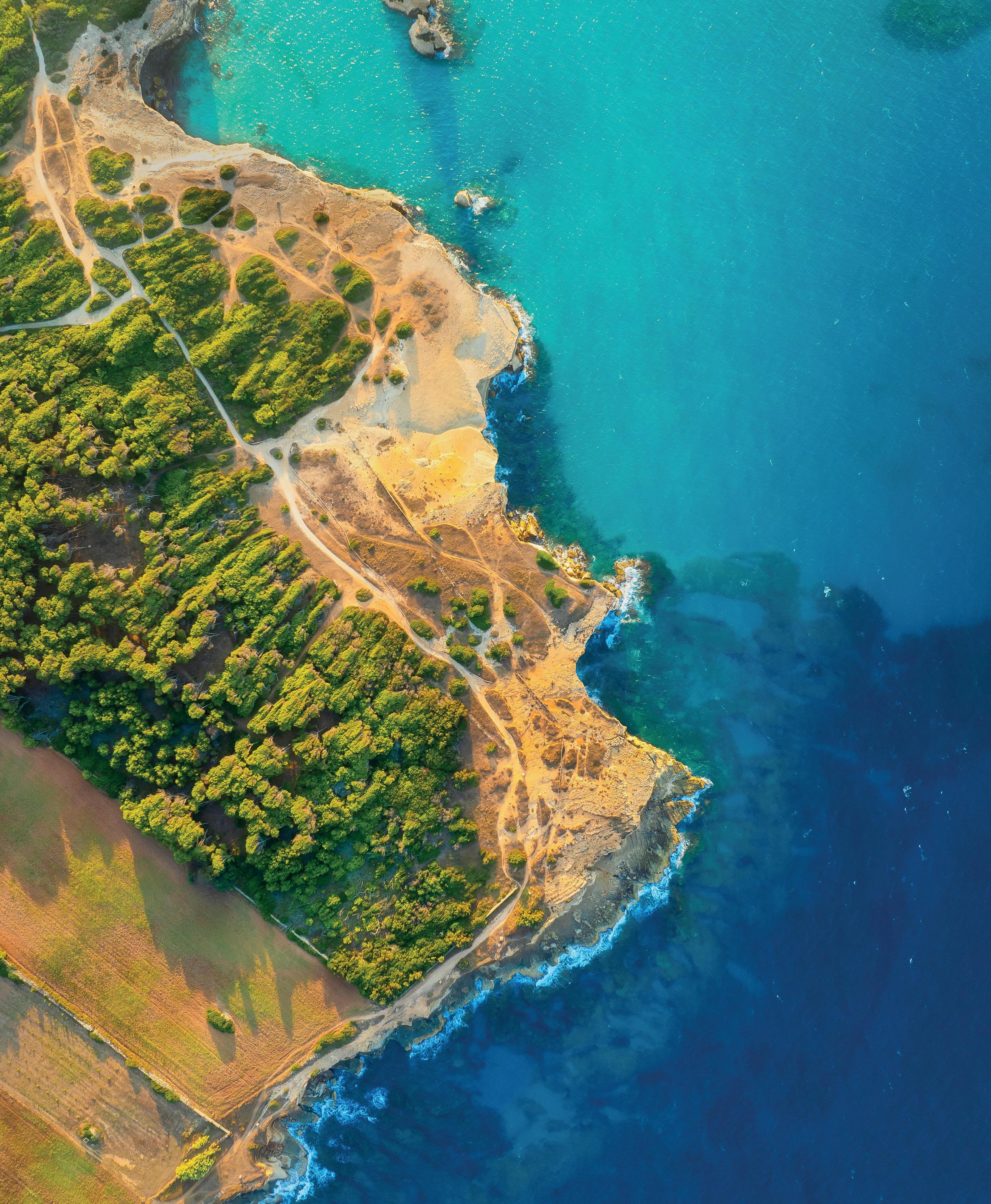
Aims
Geography at King’s explores the relationship between people and the planet. It is the subject for those who want to make sense of the modern world, connecting science, politics and economics to real-world challenges such as climate change, resource management and global development. The course develops pupils who are inquisitive about the physical and human processes that shape environments and who can apply their understanding to complex global problems.
Skills Developed
Pupils gain expertise in data handling, statistical analysis, research design and critical evaluation. They learn to use maps, satellite imagery and GIS software with confidence and to write analytically and persuasively. Geography builds independence, teamwork and decision-making skills that support both further study and future leadership.
Course Content
Geography at King’s follows the Cambridge International A Level (9696) syllabus, offering a dynamic mix of physical and human topics. Pupils begin with Physical Geography, studying hydrology and river processes, atmospheric systems and climate change, and earth processes and mass movements. They explore drainage-basin systems, weather and energy cycles, tectonic activity and related hazards.
Human Geography focuses on population and migration, water resource management and urban environments, analysing how people shape and respond to evolving spatial and social patterns.
In 6a, pupils advance to the study of coastal and hazardous environments, environmental management, and trade, aid and tourism. The course blends theory, data interpretation and extended written analysis across social, economic, environmental and political themes.
The CIE structure enables candidates to complete 50% of their assessment early, sitting
the AS papers in November before focusing on the advanced units for the final June examinations:
• Paper 1 (AS): Core Physical Geography –1½ hours (25%)
• Paper 2 (AS): Core Human Geography –1½ hours (25%)
• Paper 3 (A2): Advanced Physical Options –1½ hours (25%)
• Paper 4 (A2): Advanced Human Options –1½ hours (25%)
Enrichment and Futures
Fieldwork is central to Geography at King’s, bringing the subject to life through handson exploration of both physical and human environments. These trips carry no formal coursework requirement, allowing pupils to experience landscapes and processes first-hand without the constraints of assessment.
In 6b, pupils take part in two compulsory field days: one focused on physical geography, studying atmospheric and hydrological systems at the Devil’s Kneading Trough and along the River Stour near Wye; and one in human geography, examining urban redevelopment at sites such as the London 2012 Olympic Park, Canary Wharf and the ExCeL Centre.
The A2 course includes a compulsory threeday residential field trip to Lulworth Cove to study the Dorset coastline. An optional summer expedition to Iceland offers pupils the chance to explore the island’s ‘Golden Circle’, including the Blue Lagoon, Mt Hekla, Eyjafjallajökull, and the rift valley at Thingvellir, where they can quite literally stand between continents. The trip provides valuable case studies for A2 topics such as Hazards, Energy, Coasts and Tourism.
Guest speakers, Royal Geographical Society resources and academic competitions further enrich the course. Each year, between 40–60% of 6a geographers progress to study Geography at university. Others apply their skills in a range of disciplines, from Engineering, Natural Sciences and Land Economy to Law, Economics and related fields.
Geology
Course: A level (Eduqas)
Head of Department: Mr Mike Mawby
Aims
Geology at King’s explores the structure, evolution and dynamics of the Earth — from volcanoes and earthquakes to the formation of continents, mountains and oceans. Pupils investigate the exploration of mineral and energy resources and the vast span of geological time that charts the evolution of life.
Bridging the natural and physical sciences, Geology connects Chemistry, Physics, Biology and Geography, demonstrating how scientific discovery can address global challenges such as sustainability, resource management and natural hazards. No prior study of geology is required, and the course suits pupils from both scientific and arts backgrounds, building naturally on skills developed in core GCSE subjects.
Skills Developed
Pupils learn to apply scientific principles to the interpretation of geological data, maps, fossils and rocks. They develop practical field and laboratory techniques, analytical reasoning and quantitative skills. Geology cultivates logical problem-solving, spatial awareness and the ability to evaluate complex systems — all highly transferable skills valued across academic and professional fields.
Course Content and Assessment
The Eduqas A level Geology course is divided into three examined components and a separately reported practical endorsement.
Component 1: Geological Investigations (35%)
– pupils analyse geological maps, minerals, rocks and fossils, constructing cross-sections and responding to structured and extended questions.
Component 2: Geological Principles and Processes (30%) – covers the core concepts of mineral and rock formation, plate tectonics, Earth structure, and geological time, assessed through six structured and extended questions.
Component 3: Geological Applications (35%) –explores applied geology through questions on Geohazards, Geological Mapping, and one optional theme such as Quaternary Geology, Geological Evolution of Britain, or Geology of the Lithosphere.
Practical Endorsement – continuous assessment of field and laboratory competency, reported separately from the final grade.
Enrichment
and Futures
Fieldwork is at the heart of Geology at King’s. A short introductory trip to the Kent coast early in the course develops practical skills, followed by a four-day residential in Anglesey, North Wales, during the summer term. In the 6a year, pupils undertake a major field study, most recently to Tenerife, where they investigate volcanic processes and the dynamics of super-eruptions. These experiences bring textbook theory to life and reinforce the subject’s global relevance.
Geology is widely respected as an A level subject and provides a strong foundation for degrees in Geology, Earth Sciences, Environmental Science, Geography and Engineering. Graduates pursue careers in energy and resource exploration, environmental management, hazard assessment, and scientific research, as well as in finance, management and law, where geologists’ analytical and problem-solving skills are highly valued.
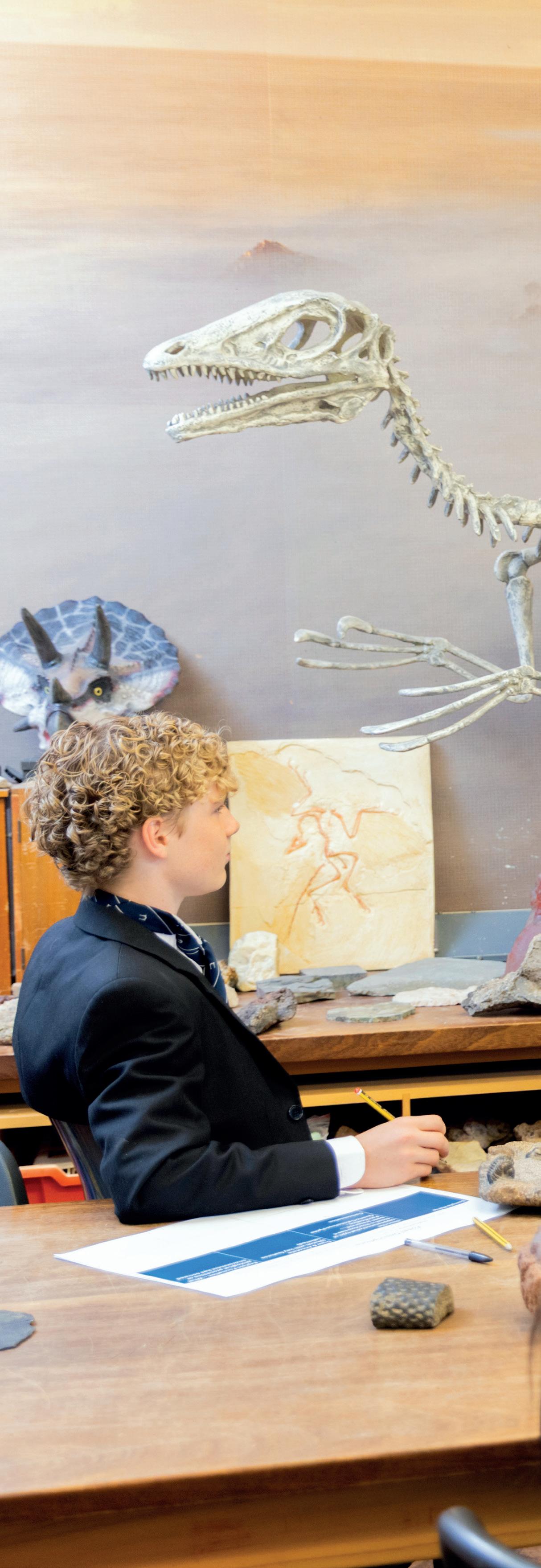

History
Course: A level (AQA 7042CH and 7042KB)
Head of Department: Mr Thomas
Sherwin
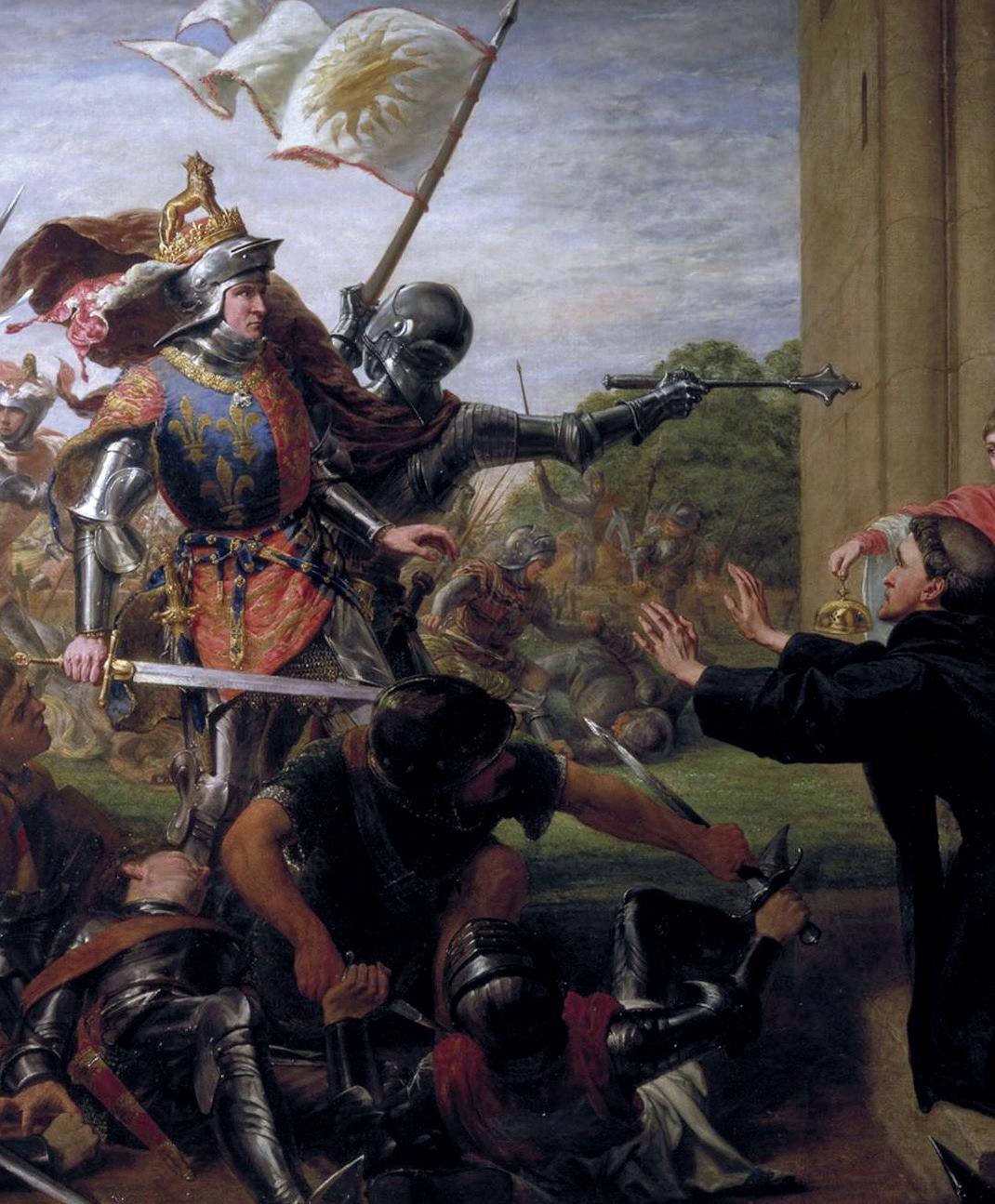
Aims
History at King’s develops curiosity, rigour and independence of thought. Pupils learn to analyse change and continuity, weigh evidence and interpretations, and write persuasive, well-structured arguments. The course equips pupils to read widely, think critically and make informed judgments about the past and its relevance to the present.
Skills Developed
Pupils practise close reading of sources, extended writing and independent research. They learn to select and analyse information from a wide range of materials and to present a persuasive case based on evidence. These are transferable skills valued by universities and employers.
Course Content and Assessment
Pupils follow the AQA A level History specification, with two routes normally available, subject to timetabling.
Route One – Early Modern Focus
• Component 1 (Breadth Study): The Tudors: England, 1485–1603
• Component 2 (Depth Study): France in Revolution, 1774–1815
Route Two – Medieval to Modern
• Component 1 (Breadth Study): The Making of a Superpower: The USA, 1865–1975
• Component 2 (Depth Study): The Wars of the Roses, 1450–1471
Pupils may express a preference, though availability depends on subject combinations within the timetable. All written components are examined at the end of the two-year course.
Both routes include a coursework investigation on The Witch Craze in Britain and Europe, 1590–1720.
There are two examined units, with each component having a separate paper – together they satisfy the breadth and British-history requirements.
Non-exam assessment: an Independent Historical Investigation of 3,000 to 4,000 words on a topic chosen by the pupil.
Enrichment and Futures
King’s historians benefit from a rich programme of enrichment opportunities, including talks hosted with the Historical Association, Sixth Form extension seminars and dedicated Oxbridge preparation in 6b and 6a. Pupils are encouraged to write for Retrospect, the school’s History magazine, and to draw on the exceptional resources of the Canterbury Cathedral archives, the School library and online platforms such as Massolit.
The department is deeply connected to its surroundings: lessons take place within sight of the Cathedral and the remains of the medieval monastery, providing a remarkable backdrop for the study of the past.
History offers outstanding preparation for degrees in History and related disciplines, and complements subjects such as Law, Politics, Economics and Languages. The analytical and communication skills it fosters are highly valued in fields including journalism, finance, management and the civil service.
History of Art
Course: A level (Pearson 9HT0)
Head of Department: Dr Holly Barton
Aims
History of Art at King’s provides a multidisciplinary understanding of how and why works of art, architecture and design are created. The subject builds visual awareness, cultural knowledge and analytical precision, encouraging pupils to look closely, think critically and write with insight about human creativity across centuries.
It is open to all Sixth Formers and complements a wide range of A level choices. Some combine it with Fine Art, English or History, while others pair it with Mathematics, Economics or the Sciences. No prior study is requiredonly curiosity and a desire to explore art and architecture within their social, political and cultural contexts.
Course Content and Assessment
The Pearson Edexcel A level History of Art course is divided into three components, assessed by two final examinations of equal weight.
Component 1: Visual Analysis – an introduction to painting, sculpture and architecture from Classical Greece (500 BCE) to the present, developing the core skills of looking and interpreting.
Component 2: Themes – exploration of Identities in Art and Architecture and War in Art and Architecture, considering how artists express individual, collective and political experience.
Component 3: Periods – in-depth study of Rebellion and Revival: The British and French Avant-Garde (1848–99) and Brave New World: Modernism in Europe (1900–39).
Skills Developed
Pupils learn the language and methods of visual analysis and acquire the ability to interpret works of art through formal, stylistic and contextual study. They develop written and oral communication skills, cultural literacy and the discipline of evidence-based argument. Independent research, critical comparison and essay technique are refined through regular discussion and written assignments.
Throughout, pupils learn to conduct research, evaluate primary and secondary sources and construct sophisticated written analyses.
Enrichment and Futures
Learning extends far beyond the classroom. Pupils visit major galleries and museums in London such as the British Museum, National Gallery and Tate, and attend study days and specialist lectures. They are encouraged to explore exhibitions independently, enter essay prizes and engage with contemporary visual culture.
History of Art nurtures analytical and creative thinking suited to a wide range of university courses and professions. Many King’s pupils continue the subject at degree level, while others pursue related fields including architecture, history, design, museum and gallery work, law, marketing, media, and cultural policy.
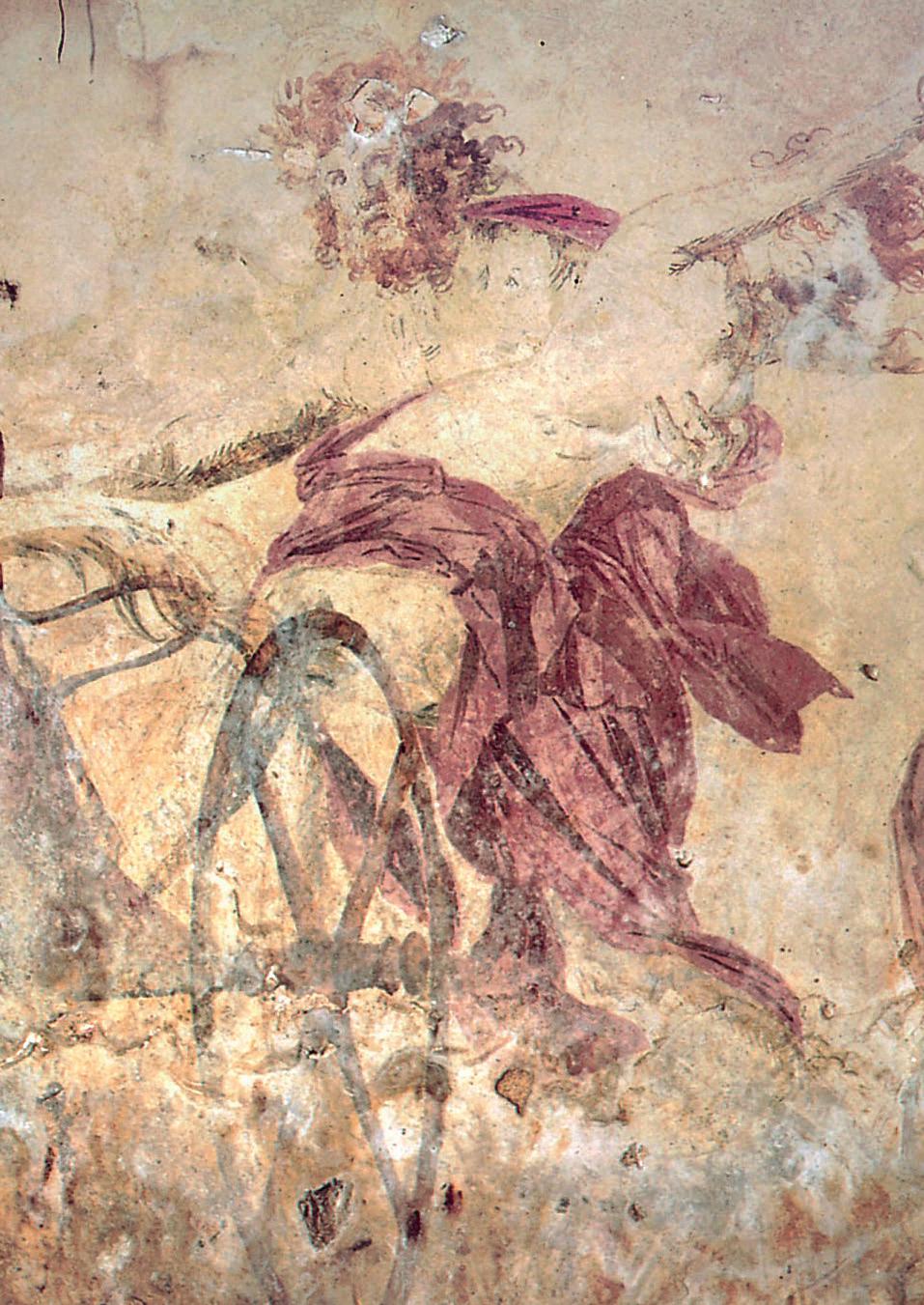
Leadership
Course: Level 3 Award in Leadership and Management (ILM) Head of Course: Dr Alistair Goddard

Aims
Leadership at King’s develops the power to lead through reflection, communication and practical experience. The course is designed by the Institute of Leadership and Management (ILM) and delivered in partnership with the Cadet Vocational College. It provides an internationally recognised qualification for aspiring leaders across all professional fields.
This E Block course runs as a half-option alongside three (or occasionally four) A levels. It is open to all pupils but is especially suited to members of the Combined Cadet Force (CCF), for whom it complements the leadership opportunities and responsibilities inherent in service.
Skills Developed
Pupils explore leadership theory and styles, gaining insight into their own motivations, values and management approaches. They learn to build trust, delegate effectively and inspire others to work towards shared goals. The course enhances communication, decisionmaking and critical self-reflection, all essential for leadership in any context. Through a combination of classroom learning, team exercises and practical command experience, pupils develop confidence in leading and managing people. Army Cadets who successfully complete the qualification are entitled to wear the ILM Level 3 badge on their uniform.
Course Content and Assessment
The course lasts one year and comprises two units:
Unit 300 – Solving Problems and Making
Decisions
Unit 307 – Giving Briefings and Making Presentations
Assessment is through two written coursework assignments of approximately 1,500 words each, externally marked by ILM. A pass in both units is required to achieve the qualification. The course requires pupils to reflect on their own practice of leadership and therefore suits those who currently hold, or are aspiring to hold, leadership positions within the School - including House Prefects, CCF NCOs, team captains and society officers.
Enrichment and Futures
The Leadership Award is relevant to pupils pursuing a wide range of careers. Employers consistently identify leadership and management as key graduate skills, and this qualification provides a tangible demonstration of both.
The course builds confidence in managing people and projects, forming an excellent foundation for leadership roles in business, the public sector, the armed forces and beyond.
The cost is approximately £100 for CCF members and £260 for other pupils.
Mathematics
Course: A level (Pearson 9MA0)
Head of Department: Mr Stuart Ocock
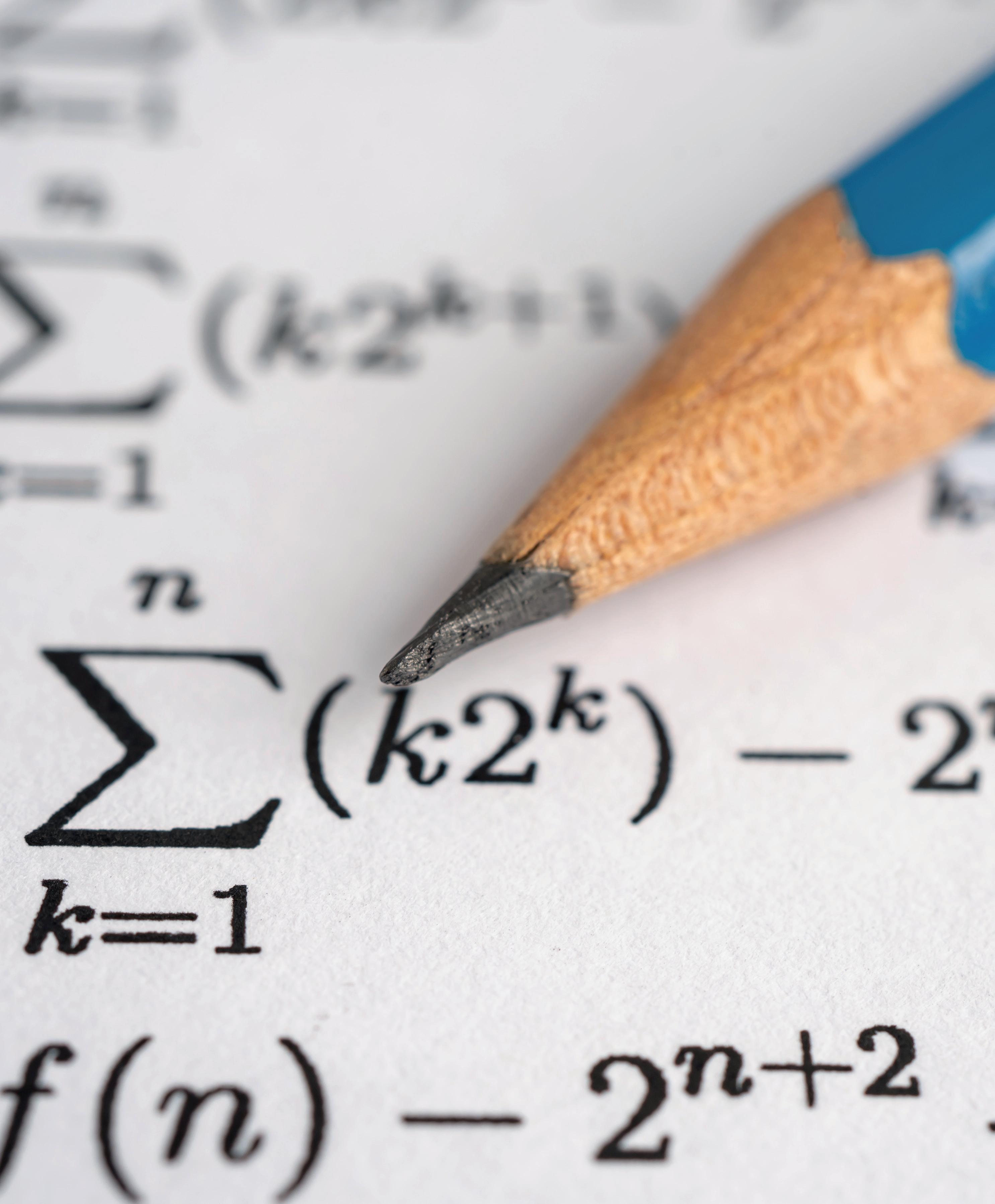
Aims
Mathematics at King’s is one of the School’s most respected and popular academic pathways. It develops the habits of thought that underpin scientific innovation, economic reasoning and creative problem-solving. The course deepens understanding of core mathematical concepts while introducing new tools to model, analyse and explain complex systems.
A high grade 7 or above at (I)GCSE is required. Those who enjoy logical thinking, pattern recognition and the intellectual satisfaction of rigorous problem-solving will find A level Mathematics both demanding and rewarding. The subject sits naturally alongside Physics, Chemistry, Biology, Economics and Computer Science but also complements the Humanities through its precision, clarity and structure.
Skills Developed
Pupils acquire fluency in algebra, geometry and calculus and learn to reason abstractly, analyse data and apply techniques to unfamiliar contexts. They develop a strong command of proof, modelling and statistical analysis, alongside transferable skills such as logical communication and disciplined problemsolving. The course also builds digital fluency through use of graphing calculators and dataprocessing tools.
Course Content and Assessment
The Edexcel linear A level Mathematics course comprises Pure Mathematics, Mechanics and Statistics. The pure component advances through algebra, coordinate geometry, trigonometry, exponentials and logarithms into differential and integral calculus. Mechanics explores the motion of particles, forces, energy and momentum, directly supporting Physics. Statistics covers probability theory, hypothesis testing, data analysis and the interpretation of a large pre-released data set.
Assessment consists of three two-hour papers: two Pure Mathematics papers and one combining Mechanics and Statistics. There is no
coursework. The examinations place particular emphasis on reasoning, problem-solving and the ability to select and apply methods in unfamiliar situations.
Occasionally, pupils who complete 6b but do not continue in 6a may opt to sit the AS Mathematics qualification, though continuation to full A level study is strongly encouraged to consolidate understanding.
Enrichment and Futures
Mathematics is a facilitating subject for a wide range of university courses, including Science, Medicine, Engineering, Economics, Law and Architecture.
The department runs a vibrant programme of extension seminars and enrichment opportunities, including UK Mathematics Trust challenges, Olympiad preparation, and coaching for the STEP and MAT university entrance papers. In the past, the department has run extension lectures and workshops showcasing the creativity and beauty of mathematics, exploring how abstract ideas find real-world application in fields from engineering to data science.
Further Mathematics
Course: A level (Pearson 9FM0)
Head of Department: Mr Stuart Ocock
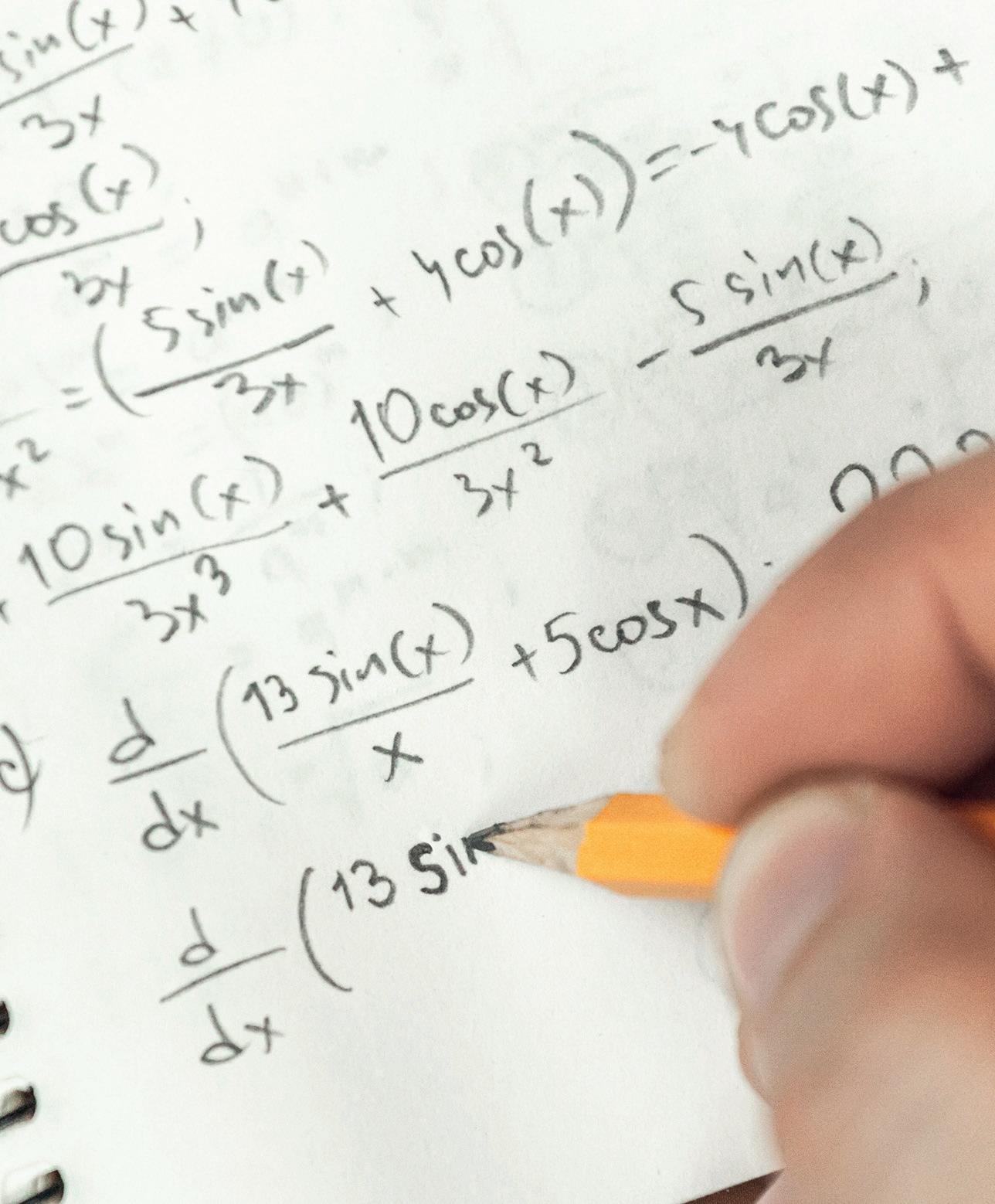
Aims
Further Mathematics at King’s represents the pinnacle of mathematical study at King’s. It offers an intellectually rich and fast-paced journey through higher-level ideas that underpin advanced scientific and analytical thought. The course attracts pupils who relish challenge and abstraction and who want to explore the deeper structures that connect algebra, geometry and analysis.
A grade 8 or 9 at (I)GCSE is normally required. Pupils take Mathematics and Further Mathematics as a double-block option, allowing for a rigorous and accelerated programme of study.
Skills Developed
Pupils acquire exceptional fluency in algebraic manipulation, calculus, proof and modelling. They learn to generalise, to think with precision and to tackle unfamiliar, multi-step problems. The course also develops intellectual resilience, independent study habits and the ability to communicate complex reasoning with clarity and elegance.

Course Content and Assessment
Further Mathematics extends the standard A level through advanced study in Pure Mathematics, Mechanics, Statistics and Decision Mathematics. Core topics include complex numbers, matrices, vectors, polar coordinates, hyperbolic functions and differential equations. Pupils apply algebraic and calculus techniques to both real and theoretical systems, developing a deeper understanding of mathematical structure and logic.
The course follows a sequential design: in 6b, pupils complete the full A level Mathematics syllabus before advancing to Further Mathematics in 6a. This ensures a secure foundation before tackling higher-level content.
A range of pathways is offered, with Further Pure plus Further Mechanics or Further Statistics as the main combinations. Pupils not pursuing the full double A level may, where possible, be taught in a set working towards AS Further Mathematics rather than ending study part-way through the year.
Assessment consists of four 90-minute papers, equally divided between compulsory and optional content, taken alongside the three standard A level Mathematics examinations. Pupils also have opportunities to prepare for the Cambridge STEP and Oxford MAT papers, which are often required for Mathematics, Engineering and Economics at leading universities.
Enrichment and Futures
Further Mathematics is the ideal preparation for competitive applications to Oxford, Cambridge, Imperial and other top universities for degrees in Mathematics, Physics, Engineering, Computer Science and Economics.
Modern Foreign Languages
Courses: A level (AQA: French, German and Spanish; Pearson 9CN0 Mandarin)
Head of Faculty: Mr Simon Bird
Head of Department: Mr Simon Bird (Head of French and German);
Mrs Begonia Garces-Ramon (Head of Spanish);
Mrs Lixin Liu (Head of Mandarin)
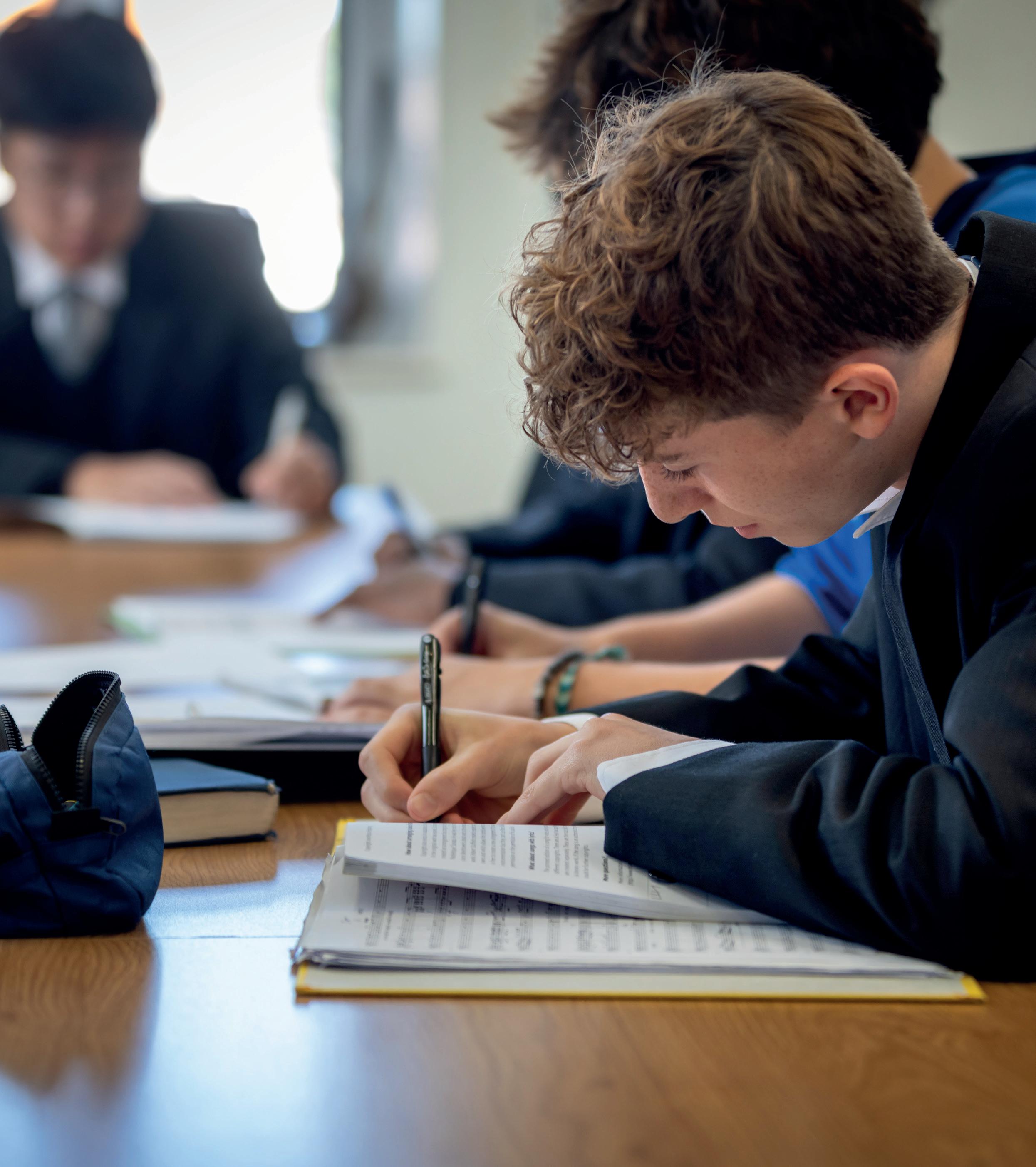
Modern Languages at King’s form one of the most vibrant and outward-looking areas of school life. Housed in the Tudor Old Archbishops’ Palace, the department offers an extensive range of languages: French, German, Spanish, Mandarin, with the offer of Italian, Russian and Japanese for bi-lingual pupils and as ab initio courses in E-Block, taught by an experienced, international team. Weekly conversation lessons with native speakers provide immersion and authenticity, and the department’s atmosphere is lively, collaborative and culturally rich.
Language learning at King’s opens doors. It sharpens analytical thinking, builds confidence in communication and deepens understanding of global cultures. University admissions tutors consistently emphasise that an A level in a modern language is a major advantage across all disciplines, including sciences and social sciences. At degree level, languages can be studied singly or in combination with other fields such as History, Economics, English, Philosophy or Business, and they continue to be among the most employable subjects.
Beyond university, linguistic ability remains a valued and portable skill. King’s linguists go on to careers in law, banking, diplomacy, the civil service, the media, education, marketing and the arts.
French, German and Spanish
These core languages are offered to pupils achieving at least grade 7 at GCSE. They follow the Edexcel A level specification, focusing on fluency in speaking, listening, reading and writing, together with literary and cultural study.
Teaching combines grammar and vocabulary development with exploration of contemporary issues and cultural identity. Pupils study one literary text and one film, enabling them to engage critically with language in context.
Mandarin
A level Mandarin Chinese is available to pupils who have achieved at least a grade 7 at GCSE or equivalent fluency. The course develops advanced linguistic competence alongside a deep understanding of Chinese culture, society and history.
Pupils study four major themes as well as two works (either two literary texts or one text and one film). Assessment comprises two written papers and one speaking examination conducted by the teacher-examiner.
Native speakers may complete the A level in one year (6b), while others take it over two years for greater depth and confidence. Mandarin offers an invaluable gateway to understanding one of the world’s most influential cultures and economies.
Russian
Russian is offered both to beginners and to pupils with some prior knowledge. Beginners follow the Poekhali! course, reaching GCSE level after one or two years depending on progress. Pupils with an existing foundation or native fluency may prepare for the Edexcel A level in one or two years.
Lessons combine textbook and online materials, video and film study, discussion, and short presentations. The course builds quickly, rewarding commitment and curiosity about Russian language, literature and society.
Italian
Italian is available to beginners in 6b, with the goal of achieving basic communicative competence within a year and GCSE-level proficiency within two. Teaching uses Amici and BBC materials alongside authentic reading and listening resources.
Well-motivated linguists or pupils with prior experience can progress rapidly to A level, and native speakers may prepare for the qualification in one or two years. Italian combines beautifully with Art, History, Music and English, offering insight into one of Europe’s richest cultural traditions.
Japanese
Japanese is offered at all levels in 6b. Beginners typically reach GCSE level after two years, using Japan Foundation resources and Japanese for Busy People I, supplemented by audio-visual materials and conversation practice.
Native speakers and advanced learners may be prepared for the Edexcel A level in one or two years. The course gives access to Japanese culture, technology and society and has proved a stimulating choice for pupils interested in global business, design and East Asian studies.
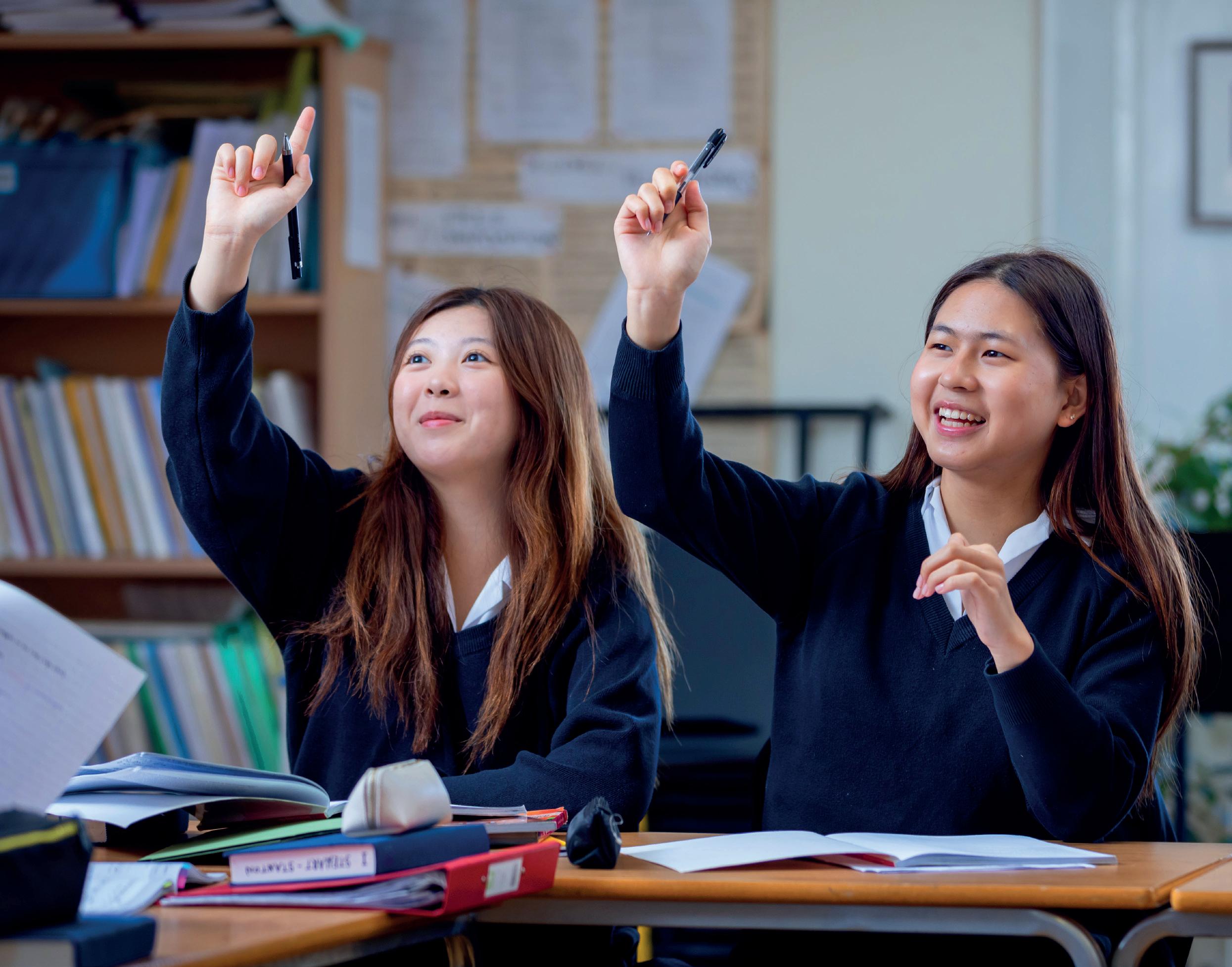
Assessment:
Paper 1: Listening, Reading and Writing –comprehension, translation and summary tasks.
Paper 2: Writing – essays on the chosen book and film.
Paper 3: Speaking – an oral exam covering an Individual Research Project and discussion of a studied theme.
A strong emphasis is placed on authentic communication. Weekly sessions with nativespeaker assistants help pupils develop natural expression and accuracy.
Cultural trips and exchanges play a major part in language learning at King’s, with recent destinations including Paris, Lyon, Seville, Barcelona, Berlin and Hamburg.
Pupils who complete one year of study may have the option to sit AS Level, depending on progress and timetable arrangements. Bilingual pupils may take the A level with reduced lesson time, and advanced linguists can pursue additional qualifications such as DELF (B1/B2) in French where demand allows.
Enrichment and Futures
The Modern Languages Department encourages all Sixth Form linguists to take an active role in the cultural life of the School. Pupils participate in debating competitions, film evenings, translation challenges and exchange programmes. King’s Week showcases pupil work in language, film and performance, while study trips abroad offer immersion in authentic linguistic and cultural settings.
Language study at King’s is both rigorous and rewarding, combining intellectual challenge with the lasting pleasure of understanding the world through another tongue. Universities value linguists for their analytical precision, communication skills and cultural literacy. An A level in a modern language is welcomed across a wide range of degree courses, from Law, History and Politics to Business, Science and International Relations - and often opens doors to prestigious programmes and study abroad opportunities at leading universities including Oxbridge, Durham, Bristol and Edinburgh.
In recent years, King’s pupils have gone on to read Modern Languages and Linguistics at Cambridge, reflecting both the academic strength of the department and the curiosity it inspires.
Music
Course: A level (Pearson 9MU0)
Head of Department: Mr Greg Swinford (Head of Academic Music)

Aims
Music at King’s develops the analytical mind and the creative imagination. Pupils explore the art and science of sound through performing, composing and critical listening, gaining insight into how music communicates emotion and structure across styles and centuries.
The course builds on GCSE foundations and instrumental study, combining practical musicianship with academic depth. A grade 7 at GCSE Music and/or Grade 5 Theory is strongly recommended. Pupils should perform to at least Grade 6 standard on an instrument or voice at the start of the course, though no formal grade exam is required.
Music can be studied alongside a wide variety of subjects, from Physics and Mathematics to English, History and Drama. Pupils with strong creative and analytical interests sometimes combine Music and Music Technology, though those aiming for highly competitive university or conservatoire routes may be advised to take four A level subjects in total.
Component 2: Composing (30%)
Two compositions are submitted, totalling at least six minutes. One is a free composition or response to a set brief (minimum four minutes, worth two-thirds of the marks); the other is a technical study in harmony or stylistic arrangement (minimum one minute, worth one-third). Pupils develop harmonic fluency through Bach chorales, arranging and guided composition projects.
Component 3: Appraising (40%)
Pupils study thirteen set works across six areas: vocal music, instrumental music, film music, popular music and jazz, fusions and new directions. The final written paper (2 hours 10 minutes) includes listening, dictation, contextual analysis and two essay questions — one on an unfamiliar work and one on a chosen set work.
Skills Developed
Pupils refine their skills as performers, composers and analysts. They learn to interpret notation and style with precision, to compose in a variety of genres and to evaluate music through critical listening and contextual study. The course strengthens creativity, discipline, teamwork and independent thought, all qualities that extend well beyond the concert hall.
Enrichment and Futures
Music flourishes at King’s. Pupils are encouraged to perform regularly, from chamber concerts and chapel services to largescale orchestral, choral and jazz performances. The School’s annual King’s Week festival celebrates music across every genre, with highlights including operas, orchestral concerts and recitals in the Shirley Hall and Mint Yard. Visiting professionals lead masterclasses and workshops, and many pupils gain music awards, scholarships or go on to conservatoires and leading universities.
Music at King’s is both rigorous and joyful, a course that rewards intellectual curiosity and creative ambition in equal measure.
Course Content and Assessment
Component 1: Performing (30%)
Pupils prepare an eight-minute recital, performed towards the end of the 6a year and assessed externally. Performances may be solo, ensemble, improvised or realised through music technology. Grade 7 repertoire represents the standard level of difficulty, with more advanced work scaled up accordingly. Regular instrumental or vocal tuition is expected throughout the course.
Music Technology
Course: A level (Pearson 9MT0)
Head of Department: Mr Greg Swinford (Head of Academic Music)

Aims
Music Technology at King’s explores the art and science of recording, producing and composing contemporary music. It provides a creative and technical pathway for pupils fascinated by how sound is shaped and captured, appealing equally to performers, producers and aspiring sound engineers.
The course focuses on studio practice and production, including recording, mixing, digital composition and the evolution of music technology. It is ideal for pupils who enjoy creating and manipulating sound through live performance or computer-based production.
Music Technology combines well with a wide range of subjects. Those considering the Tonmeister course at the University of Surrey or similar programmes may wish to pair it with Mathematics and Physics, though this is not essential for most music production or popular music pathways. Pupils may also study both Music and Music Technology, often within a four-A level programme depending on university ambitions.
Skills Developed
Pupils develop technical fluency, creative discipline and an understanding of how technology shapes musical expression. The course builds skills in recording, mixing, sound design and digital composition, while also strengthening collaboration, independent learning and critical listening.
Course
Content and Assessment
The course is structured around three central themes:
• Recording and production techniques for corrective and creative purposes
• Principles of sound and audio technology
• The development of recording and production technology
Component 1: Recording (20%)
A practical coursework unit in which pupils record, edit, process and mix a song originally
performed by one of ten artists chosen by the exam board. The task demonstrates technical control of production tools and recording techniques and is externally assessed.
Component 2: Technology-based Composition (20%)
A creative composition project using synthesis, sampling, audio manipulation and effects. Pupils respond to a brief set by the exam board, producing a complete piece through digital methods of composition and sound design.
Component 3: Listening and Analysing (25%)
A written examination testing understanding of recording and production principles. Pupils analyse unfamiliar recordings, identify production features and write a comparative essay on two commercial tracks.
Component 4: Producing and Analysing (35%)
A combined practical and written examination assessing editing, mixing and production skills using Logic Pro. Tasks explore signal paths, effects and hardware, culminating in an extended written response based on a realistic production scenario.
Enrichment and Futures
Music Technology at King’s is a hands-on, creative discipline supported by professionalgrade studio facilities. Pupils collaborate with performers, record live ensembles and produce original compositions. They learn to think critically about sound, structure and technology, preparing for further study in Music Production, Sound Engineering, Popular Music, Composition, or Media.
Many graduates continue to leading institutions such as the Royal Northern College of Music, Leeds Conservatoire, and Surrey’s Tonmeister course, or pursue careers in music production, broadcasting, film & television, and digital media.
During King’s Week, Music Technology pupils take a central role in live sound engineering, stage production and showcasing their own tracks, demonstrating the creative and technical excellence that defines the department.
Philosophy
Course: A level (AQA 7172)
Head of Department: Dr
Daniel Cardinal
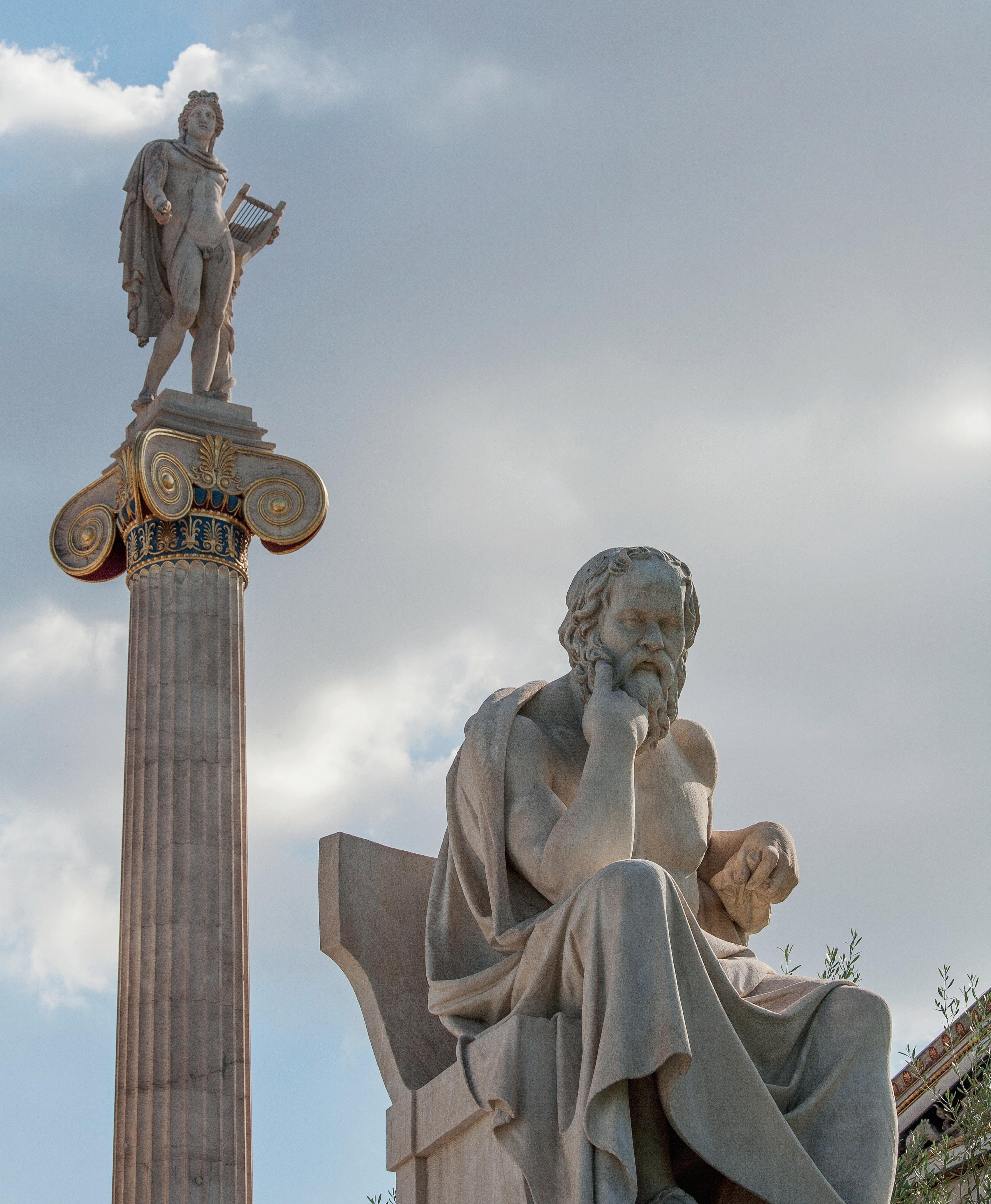
Aims
Philosophy at King’s invites pupils to explore enduring questions about knowledge, existence, morality and the mind. It develops clarity of thought, logical reasoning and the ability to construct coherent, persuasive arguments. Pupils learn to analyse ideas with precision, challenge assumptions and write with intellectual rigour, skills highly valued by universities and employers alike.
No prior study is required, though curiosity, open-mindedness and a readiness to think critically are essential. The course rewards those who enjoy discussion, debate and the disciplined pursuit of truth. Strong performance in Religious Studies, English or Mathematics (grade 7 or above) is recommended, as Philosophy demands both analytical and linguistic precision.
The subject combines naturally with a wide range of A levels, from History, English and Politics to Mathematics and the Sciences, and provides an excellent foundation for degrees in Philosophy, PPE, Law, Politics and other disciplines requiring sharp reasoning and clear expression.
6b: Paper 1 – Epistemology and Moral Philosophy
Epistemology explores the nature and limits of human knowledge.
Moral Philosophy examines how we determine what is right and wrong through the major ethical systems of Utilitarianism, Kantian Ethics and Virtue Ethics.
6a: Paper 2 – The Metaphysics of God and the Metaphysics of Mind
The Metaphysics of God investigates classical and modern arguments for and against the existence of a supreme being.
The Metaphysics of Mind explores the nature of consciousness and its relationship to the physical body.
Two written examinations, each lasting three hours and worth 100 marks. Both require extended essay responses that demonstrate clear understanding, precise analysis and the ability to construct sustained philosophical argument.
Skills Developed
Pupils learn to analyse texts and arguments systematically, to identify fallacies and assumptions, and to write with clarity and concision. They gain experience in evaluating evidence, balancing competing viewpoints and articulating their own position with confidence and precision. The discipline nurtures intellectual independence and resilience in grappling with difficult ideas.
Course Content and Assessment
The AQA A level Philosophy course provides an excellent grounding in key philosophical problems through the study of an anthology of seminal texts. It is divided into two papers, each sat in the summer of the 6a year and weighted equally at 50% of the final grade.
Enrichment
and Futures
Philosophy at King’s extends well beyond the classroom. Pupils take part in the Philosophy and Ethics Society, attend lectures at local universities and enter national essay competitions. Student-led debates and symposia explore contemporary philosophical questions in an open and reflective atmosphere.
Many King’s philosophers progress to top universities to study Philosophy, PPE, Law, Theology, or Politics, carrying with them the intellectual discipline and curiosity that are hallmarks of this course.
Photography
Course: A level Art and Design (Photography) (AQA 7206)
Head of Department: Mrs Isobel
Dutton
Aims
Photography at King’s is a dynamic and creative course that encourages pupils to see the world through an artistic and analytical lens. It combines technical skill with conceptual thinking, enabling pupils to develop both practical expertise and visual intelligence. Working across darkroom and digital media, pupils explore portraiture, landscape, still life, documentary, fashion and experimental photography to cultivate a distinctive personal style.
A grade 7, 8 or 9 in GCSE Art and Design or Photography is normally expected, though pupils with strong creative potential may also be considered. Photography pairs well with a wide range of subjects and demands commitment, curiosity and sustained practical engagement.
Course Content and Assessment
The AQA A level in Art and Design (Photography) is structured around two components, both combining practical work with written analysis.
Component 1: Personal Investigation (60%)
A sustained practical project supported by written material of up to 3,000 words. Pupils select an independent theme or issue and explore it through visual and contextual research, culminating in a coherent final outcome or series of related works. The investigation is informed by the study of photographers and artists from both past and contemporary practice.
Component 2: Externally Set Assignment (40%)
An externally set brief released in February of the 6a year. Pupils respond to a chosen stimulus through preparatory research and development, before completing a 15-hour supervised practical examination to produce a final outcome or series.
Skills Developed
Photography fosters creativity, independence and critical awareness. Pupils learn to plan, shoot, edit and present work with precision, developing the ability to communicate ideas visually and conceptually. The course strengthens analytical and problem-solving skills that are highly valued in the wider creative industries and beyond.
Enrichment and Futures
Photography pupils at King’s are encouraged to experiment, collaborate and exhibit their work. They take part in workshops, gallery visits and field projects, exploring both technical processes and artistic intent. The School’s extensive visual arts facilities including studio spaces and professional digital equipment support a culture of creative ambition.
Many King’s photographers go on to study Fine Art, Architecture, Media, Design, or Photography at leading universities and art schools. During King’s Week, pupils exhibit their portfolios publicly, showcasing the vision, originality and craftsmanship that characterise the department’s work.
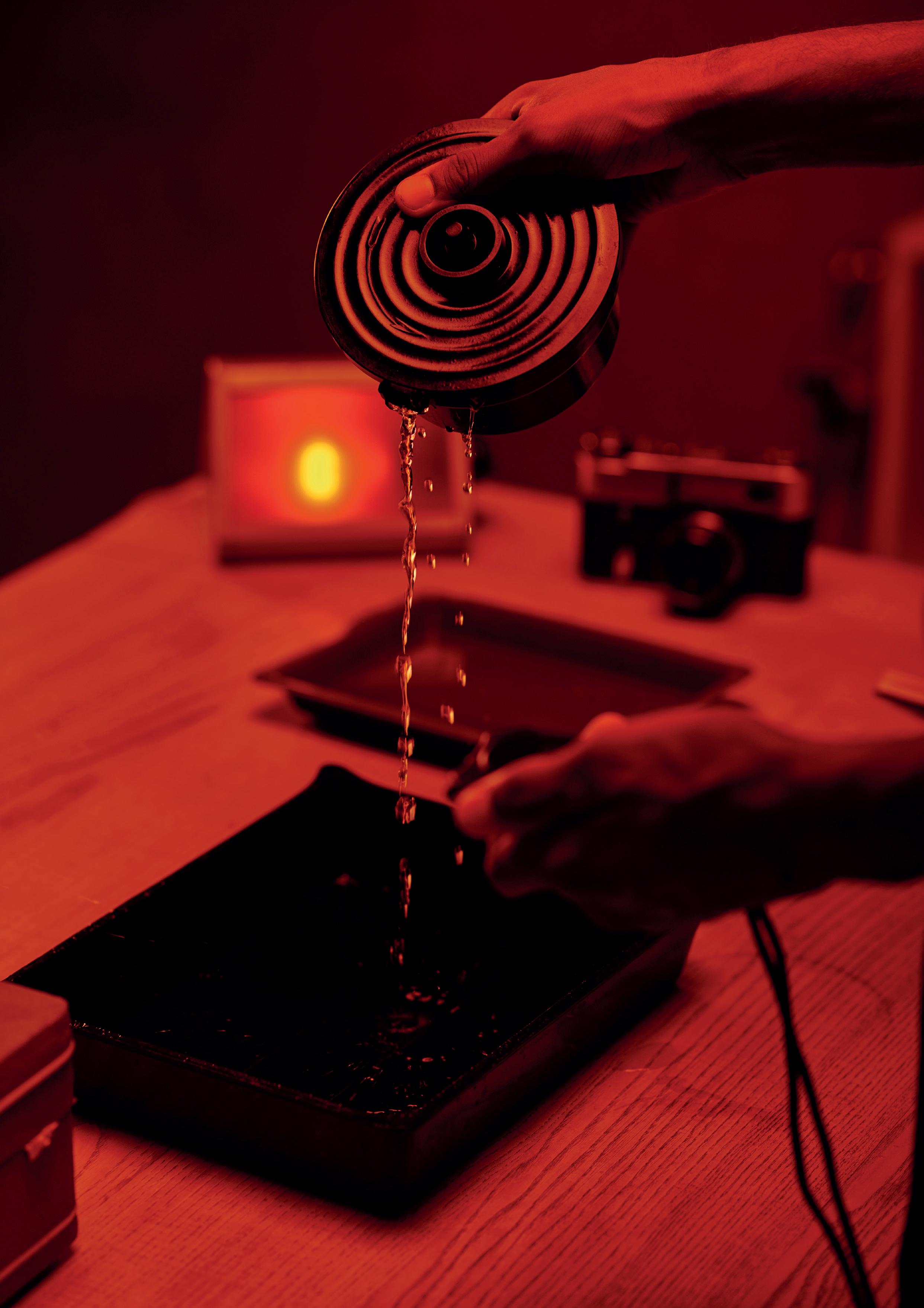
Physical Education (PE)
Course: A level (OCR H555)
Head of Department: Ms Sophia
Scott
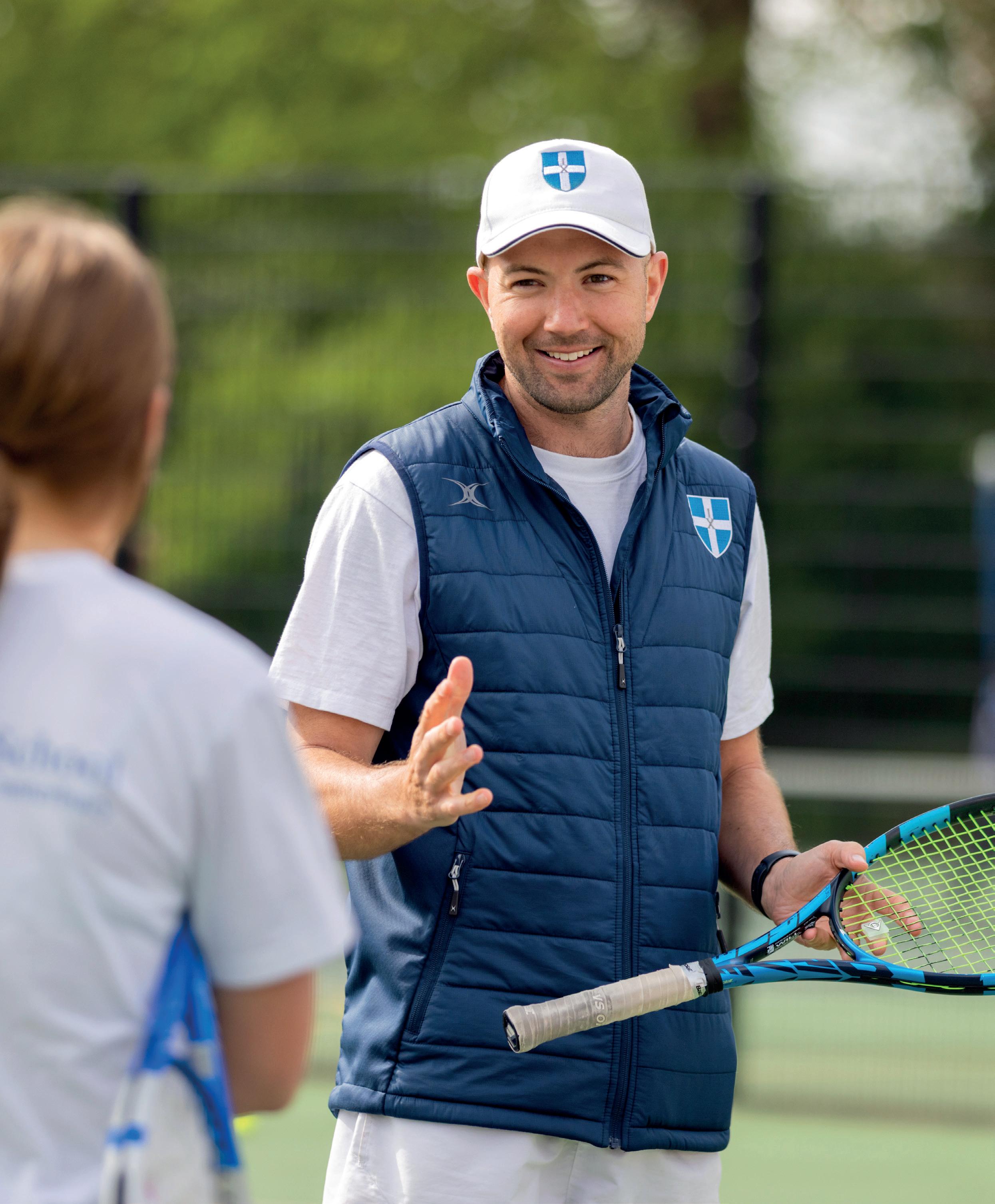
Aims
Physical Education at King’s combines scientific rigour with a passion for performance. The course explores the physiological, psychological and socio-cultural factors that influence participation and excellence in sport. It is ideal for pupils who are not only keen athletes but also curious about the theory that underpins training, performance and human movement.
A high level of practical ability in at least one sport is required, and while GCSE PE is an advantage, it is not essential. Pupils should be motivated, analytical and ready to approach sport as an academic discipline as well as a practical pursuit.
Socio-Cultural Issues in Physical Activity and Sport (20%)
Explores sport and society, including the influence of ethics, media, and technology on performance and participation, as well as contemporary issues shaping modern sport.
Performance in Physical Education (30%)
This non-examined assessment (NEA) comprises:
• Performance or Coaching in One Sport –assessment of practical performance or coaching ability.
• Evaluation and Analysis of Performance for Improvement (EAPI) – an oral analysis task assessing the ability to observe, critique and develop performance strategies.
Skills Developed
Pupils learn to connect theory and practice through critical analysis and evaluation of performance. The course builds expertise in scientific reasoning, problem-solving, data interpretation, and written communication, while developing leadership, resilience and reflective thinking, skills that are valuable far beyond the sporting arena.
Course Content and Assessment
The OCR A level in Physical Education is a twoyear linear qualification, assessed through a combination of written papers and nonexamined practical components.
Physiological Factors Affecting Performance (30%)
Covers applied anatomy and physiology, exercise physiology and biomechanics, exploring how the body responds to and recovers from physical activity and how movement efficiency can be optimised.
Psychological Factors Affecting Performance (20%)
Examines skill acquisition and sports psychology, analysing how athletes learn, develop and perform under pressure, and how motivation, confidence and focus can be enhanced.
Enrichment and Futures
PE at King’s integrates theory with experience. Pupils make use of the School’s exceptional sports facilities and benefit from a vibrant co-curricular programme that includes national and regional competitions. They are encouraged to apply theoretical learning directly to their own sport, whether as players, coaches or analysts.
The A level provides a foundation for degrees in Sports Science, Exercise Physiology, Psychology, Biomechanics, Nutrition, or Physical Education, and opens routes to careers in sports medicine, coaching, performance analysis, equipment design, rehabilitation and sports management.
Above all, the course nurtures analytical thinkers who understand the science, psychology and spirit of sport and who can apply that understanding in any field.
Sport (BTEC Level 3 National Diploma/ Extended Certificate)
Exam Board: Pearson BTEC (DJLS6)
Head of Course: Ms Charlotte Wayman
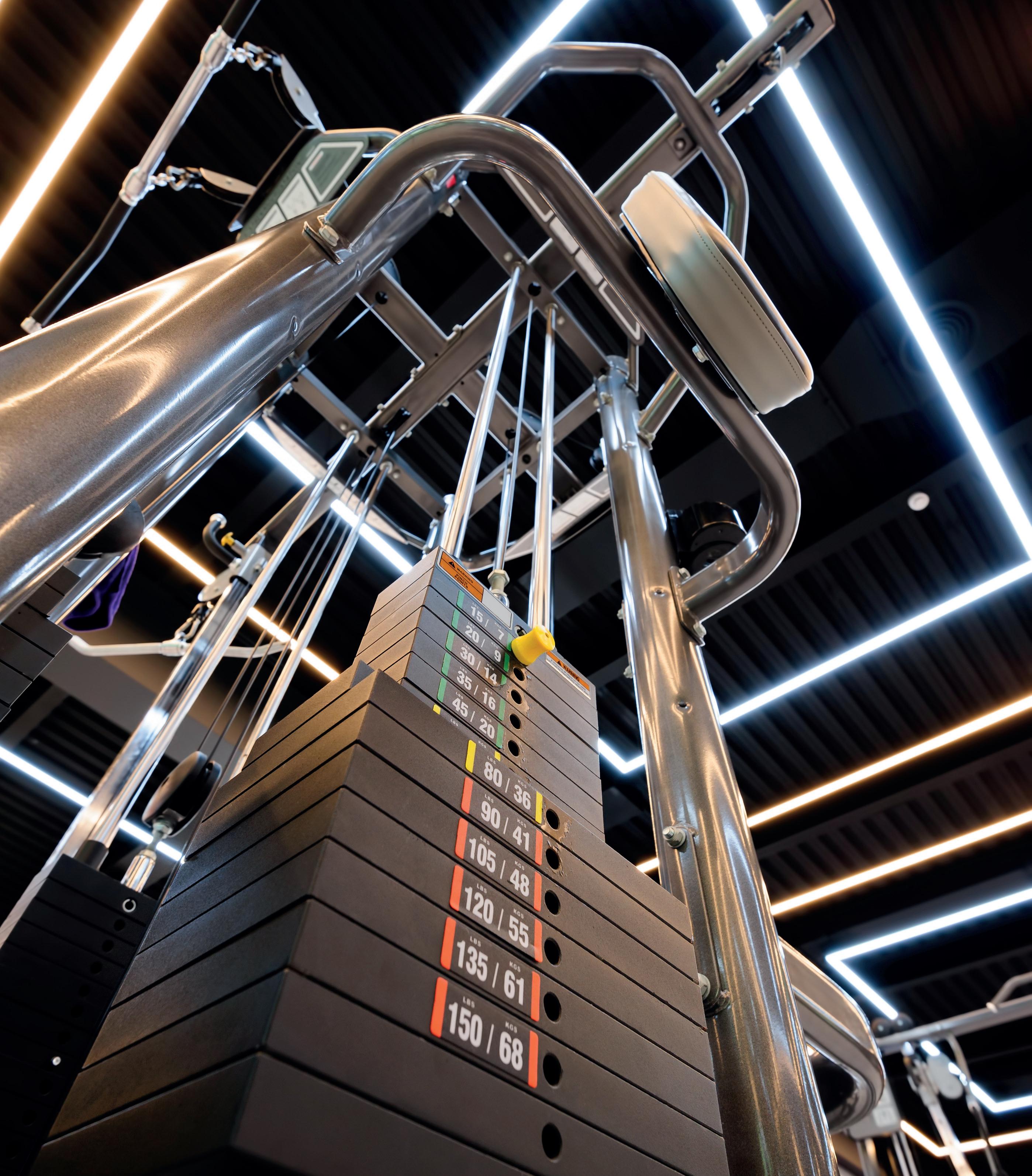
Aims
The BTEC in Sport at King’s provides a practical and applied alternative to A levels for pupils passionate about sport and physical activity. The course combines theory with hands-on experience, exploring the science, psychology and management of sport through continual assessment and real-world application.
Assessment is largely coursework-based, with examined and practical elements spread across two years. Pupils complete projects, assignments and presentations rather than final written papers, a structure that rewards consistent effort, independence and selfmotivation.
GCSE PE is desirable, but not essential. Pupils should have a strong interest in sport, a willingness to work collaboratively and independently, and the discipline to meet deadlines in both written and practical tasks.
Skills Developed
Pupils learn to plan, evaluate and deliver sporting activities, analyse performance, and understand the science and business of sport. The course develops independence, communication, teamwork and leadership, qualities that are valuable in university study and employment alike.
Course Content and Assessment
At King’s, we offer two qualification routes:
BTEC Level 3 National Diploma in Sport –equivalent to two A levels, allowing pupils to study one or two additional A levels alongside it. This course begins in 6b and runs for two years.
BTEC Level 3 Extended Certificate in Sport –equivalent to one A level, available in specific cases (on the recommendation of the Head of PE, HsM, or Deputy Head Academic). This option provides greater flexibility and may be taken alongside two or three A levels, with variable entry points depending on individual circumstances.
The Diploma comprises a blend of mandatory and optional units, assessed through a mixture of internal coursework and external examination. The structure enables pupils to explore different aspects of sport science, coaching, fitness and performance analysis.
Example units include:
• Anatomy and Physiology
• Fitness Training and Programming for Health, Sport and Wellbeing
• Professional Development in the Sports Industry
• Sports Leadership
• Practical Sports Performance
• Sports Psychology
• Sports Event Organisation
Each unit is graded on a Distinction (D), Merit (M), Pass (P), Near Pass (N) or Unclassified (U) scale. The Near Pass applies only to externally assessed units. Final grades convert directly to UCAS tariff points and carry the same academic weight as A level qualifications.
Enrichment and Futures
King’s pupils benefit from extensive sporting facilities and opportunities for leadership in coaching, officiating and event management. They are encouraged to integrate classroom learning with practical application in the School’s elite and recreational sport programmes.
The qualification provides a strong foundation for higher education courses such as:
• BA (Hons) Sports Development and Management
• BSc (Hons) Sports and Exercise Science
• BSc (Hons) Sports Management
• BA (Hons) Coaching and Physical Education
Universities such as Loughborough and Durham recognise the BTEC Level 3 in Sport as a rigorous and respected qualification when achieved with high grades and complemented by suitable A levels. Many King’s pupils have progressed to sport and exercise science programmes at these and other top institutions.
Physics
Course: A level (Eduqas A420QS)
Head of Department: Ms Louise
Comber

Aims
Physics at King’s explores the laws that govern the universe, from subatomic particles to galaxies and space-time. The course develops analytical thinking, creativity and curiosity about how the world works. Pupils learn to observe, model and test theories through experimentation, building a strong conceptual understanding of the physical world.
Physicists are problem-solvers at heart. The A level builds on core concepts from earlier years and moves into advanced ideas such as quantum theory, particle physics and cosmology. It encourages pupils to think critically, apply mathematical reasoning and approach problems with precision and imagination.
Pupils should have at least a grade 7 in (I)GCSE Physics or the Physics component of Double Award Science, and a grade 7 in Mathematics. Those aiming for the highest grades are advised to have grade 8s in both.
Physics is mathematically demanding and combines particularly well with Mathematics, Chemistry, Biology, Economics or Geography.
motion, vibrations, kinetic theory and thermal physics.
Component 2: Electricity and the Universe (2 hr written exam)
Focuses on electric circuits, capacitance, solids under stress, electrostatic and gravitational fields, and the use of radiation to investigate stars, orbits and the wider universe.
Component 3: Light, Nuclei and Options (2 hr 15 min written exam)
Includes waves and oscillations, quantum theory, lasers, radioactivity, particle physics, magnetic fields and electromagnetism. Pupils also choose one optional topic from:
• Alternating Currents
• Medical Physics
• The Physics of Sport
• Energy and the Environment
Practical Endorsement
A non-exam assessment of laboratory competency, reported separately from the final grade. Pupils complete a range of practical tasks and investigations throughout the course.
Skills Developed
Pupils design experiments, analyse data mathematically and use evidence to explain and predict phenomena. The course strengthens numeracy, logical thinking and independence of mind. These skills make physicists highly valued across a wide range of disciplines, from Engineering and research to finance, data analysis, law, renewable energy and technology development.
Course Content and Assessment
The Eduqas A level Physics course is linear, examined at the end of the 6a year, and supported by a separate Practical Endorsement that assesses experimental competence.
Component 1: Newtonian Physics
(2 hr 15 min written exam)
Covers kinematics, dynamics, energy, circular
Enrichment and Futures
The department offers extension sessions for pupils aiming to pursue Physics, Engineering or related subjects at university, including preparation for Cambridge Natural Sciences and Oxford Physics admissions tests. Weekly extra-help classes are available for those consolidating their mathematical foundations, particularly pupils not taking A level Mathematics or those who completed Double Award Science.
Pupils are also encouraged to participate in the British Physics Olympiad and to attend lectures, university masterclasses and departmental research visits.
Physics is one of the most versatile A levels. It provides a strong foundation for degrees in Physics, Astrophysics, Engineering, Materials Science, Computer Science, Medicine and Philosophy of Science, among others.
Politics
Course: A level (Pearson 9PL0 3A)
Head of Department: Mr Tom Sherwin

Aims
Politics at King’s is an exciting and intellectually demanding subject that explores the ideas, institutions and forces shaping power and democracy in the modern world. Pupils gain a deep understanding of how societies are governed and how decisions are made, both in the UK and beyond. They examine political systems, parties and ideologies, studying how power operates and how citizens can influence change.
Through the study of current events, historical developments and political theory, pupils learn to connect local, national and global politics. The course nurtures curiosity, independence of thought and informed engagement with public life, aiming to produce thoughtful and articulate young people who understand not only how politics works but why it matters.
A grade 7 or above in History or English is a strong indicator of readiness. Politics combines particularly well with History, Economics, English, Philosophy, Religious Studies, Classics and Languages, and also complements the sciences for pupils seeking intellectual breadth and a deeper understanding of the world.
Course Content and Assessment
The Edexcel A level Politics course is linear and assessed through three examinations at the end of the 6a year. It provides a rigorous understanding of the UK political system, comparative politics and key ideological traditions.
Component 1: UK Politics and Core Political Ideas
Examines the communication between government and the people. For Core Political Ideas, pupils study Liberalism, Conservatism and Socialism.
Assessment: 2-hour exam (84 marks, one third of total grade).
Component 2: UK Government and Optional Political Idea
Explores the UK’s system of governance. For the Optional Political Idea, pupils study Nationalism. Assessment: 2-hour exam (84 marks, one third of total grade).
Component 3: Comparative Politics – The United States of America
Focuses on US political institutions and compares them with those of the UK. Assessment: 2-hour exam (84 marks, one third of total grade).
Skills Developed
Politics cultivates a broad range of analytical, written and verbal skills. Pupils learn to construct and sustain logical, evidence-based arguments, to write persuasive essays, and to evaluate complex ideas from multiple perspectives. Debate and discussion form an important part of the course, encouraging clarity of thought, active listening and intellectual flexibility.
Pupils develop critical awareness, independence of judgement and confidence in tackling unfamiliar issues - all essential skills for university study and professional life. Politics suits those who are inquisitive about current affairs and enjoy challenging assumptions through reading, writing and debate.
Enrichment and Futures
Politics at King’s extends well beyond the classroom. The Politics Society hosts talks from leading public figures, journalists and academics, while pupils take part in Model United Nations and visits to Parliament, the Supreme Court and national conferences.
Politics provides an excellent foundation for a wide range of university courses and careers. Many pupils go on to study Politics, International Relations, PPE at Oxford, HSPS at Cambridge, or related degrees at LSE, Durham and St Andrews.
The subject develops analytical, communication and leadership skills valued in journalism, law, business, public policy, consultancy, the civil service and international organisations, preparing pupils to engage thoughtfully and confidently with the world around them.
Psychology
Course: A level (AQA 7182)
Head of Department: Mr Jonathan
Hutchings
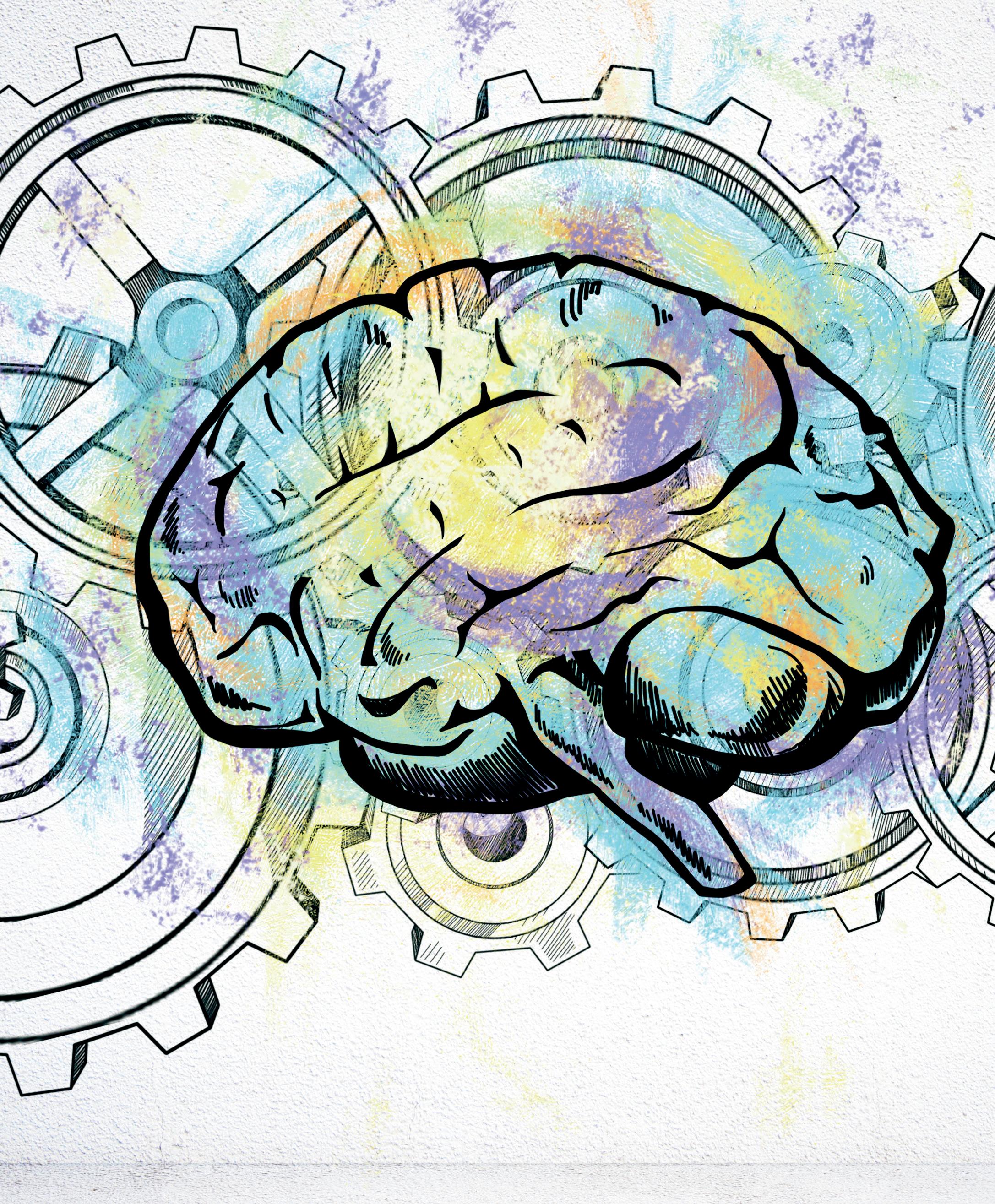
Aims
Psychology is the scientific study of the mind and behaviour, an exploration of what drives human thought, emotion and action. It examines how we perceive, remember and learn, how early experiences shape us, and why individuals differ in their responses to the world around them.
Through the study of psychology, pupils investigate key questions such as:
• Why do some people conform while others rebel?
• Can childhood experiences truly define who we become?
• Does prison change behaviour or reinforce it?
• What distinguishes normality from abnormality?
Psychology challenges pupils to think critically about human nature and to apply scientific method to some of society’s most complex questions.
No prior study of psychology is required, but pupils should be confident readers and writers, with strong analytical and numerical skills. A grade 7 or above in English, Biology or Mathematics is a good indicator of readiness.
Psychology complements a wide range of other A levels including Biology, Mathematics, Economics, History, English and Physical Education. It bridges the sciences and humanities, appealing equally to those interested in people, data and ideas.
Skills Developed
Pupils develop a blend of scientific reasoning, essay writing and statistical analysis. They learn to design investigations, interpret data, and evaluate competing theories, skills that are invaluable across the sciences, humanities and social sciences alike.
Course Content and Assessment
The Psychology course develops understanding across major approaches in psychology and their real-world applications.
Year 12 (6b)
• Social Influence – why people conform or obey authority
• Memory – how we encode, store and retrieve information
• Attachment – the influence of early relationships
• Approaches in Psychology – the key perspectives explaining behaviour
• Biopsychology – the structure and function of the brain and nervous system
• Research Methods – experimental design, data analysis and ethics
Year 13 (6a)
• Issues and Debates in Psychology – exploring gender, culture, and determinism
• Advanced Approaches and Biopsychology
• Three Option Topics, one from each group: 1. Relationships, Gender, or Cognition and Development
2. Schizophrenia, Eating Behaviour, or Stress
3. Aggression, Forensic Psychology, or Addiction
There are three written papers (2 hours each, equal weighting).
Enrichment and Futures
Psychology at King’s encourages curiosity and application. Pupils engage with case studies, research projects, and contemporary debates in mental health, criminology and neuroscience. The department regularly organises guest lectures, workshops and visits to university psychology departments and conferences.
Psychology provides a strong foundation for degrees in Psychology, Neuroscience, Education, Sociology, Law, Business, Criminology and Medicine, and for careers in clinical and forensic psychology, research, education, management, human resources, healthcare and marketing.
An understanding of how people think, feel and behave is valuable in every field making Psychology both intellectually rich and endlessly relevant.
Religious Studies
Course: A level (AQA 7062B)
Head of Department: Dr Daniel Cardinal
Aims
Religious Studies at King’s explores some of the deepest questions about human existence, belief and morality. Pupils engage with the great philosophical and ethical debates that have shaped societies and continue to influence thought today. The course encourages clarity of reasoning, empathy with diverse perspectives, and the ability to build logical, well-evidenced arguments, skills that are invaluable across the humanities and social sciences.
It is not necessary to have studied GCSE
Religious Studies, although the A level course demands greater depth of reasoning and essay-based analysis. Pupils should have strong writing skills, intellectual curiosity and a readiness to question assumptions.
Religious Studies combines well with Philosophy, Politics, Economics, English, History, Classics, Geography, History of Art and Modern Languages, and has also been successfully paired with the sciences.
Skills Developed
Pupils develop skills in critical thinking, logical argument, moral reasoning and the interpretation of complex texts. They learn to analyse abstract concepts with precision and to evaluate contrasting worldviews with fairness and intellectual independence.
Ethics and Religion: Ethical theories; issues of human and animal life and death; meta-ethics; free will and moral responsibility; conscience; and the ethical thought of Bentham and Kant.
Paper 2: Study of Religion and Dialogues
Study of Christianity: Sources of wisdom and authority, the nature of God, morality, life after death, religious identity, gender and sexuality, religion and science, secularisation and pluralism.
Dialogues: The interaction between philosophy, ethics and religion — how religious belief both influences and is influenced by philosophical and ethical inquiry.
Paper 1 (2 hours) and Paper 2 (3 hours), each contribute 50% of the final grade. There is no coursework component.
Course Content and Assessment
Pupils follow the AQA A level Religious Studies specification, which is divided into two equally weighted papers:
Paper 1: Philosophy of Religion and Ethics
Philosophy of Religion: Arguments for the existence of God, evil and suffering, religious experience, language, miracles, and ideas of self and life after death.
Enrichment and Futures
Religious Studies pupils are encouraged to engage in philosophical discussion and interfaith dialogue through seminars, lectures and academic essay competitions. The subject fosters cultural literacy and reflective judgment, attributes central to university study and leadership in any field.
The A level provides an excellent foundation for degrees in Theology, Philosophy, Religious Studies, History, Anthropology, Sociology, Law, Medicine, and Politics. Graduates pursue diverse careers in law, education, publishing, public policy, journalism, media and communications.
Above all, Religious Studies at King’s equips pupils to think deeply, argue persuasively and understand the ideas that continue to shape our world.
